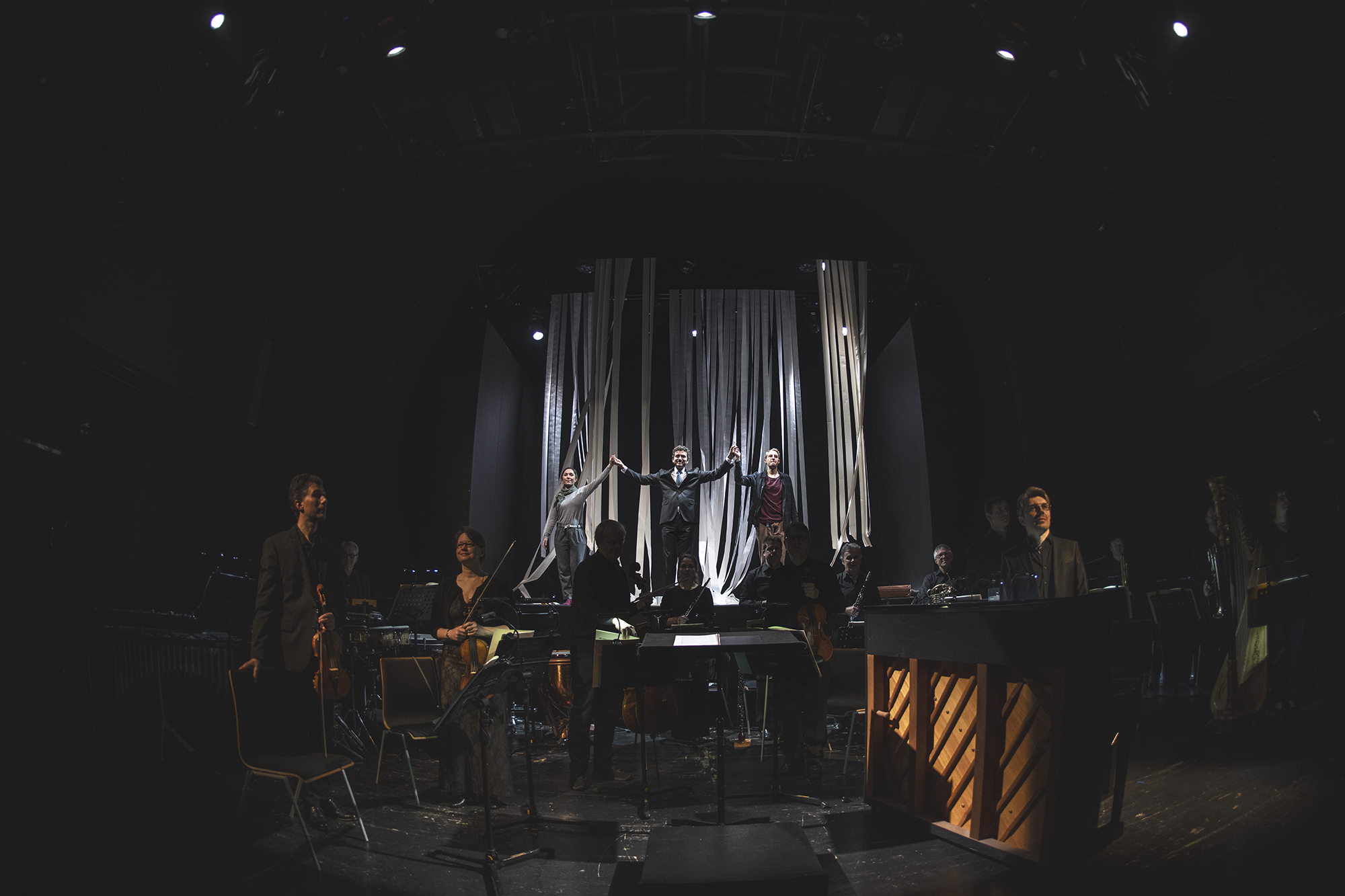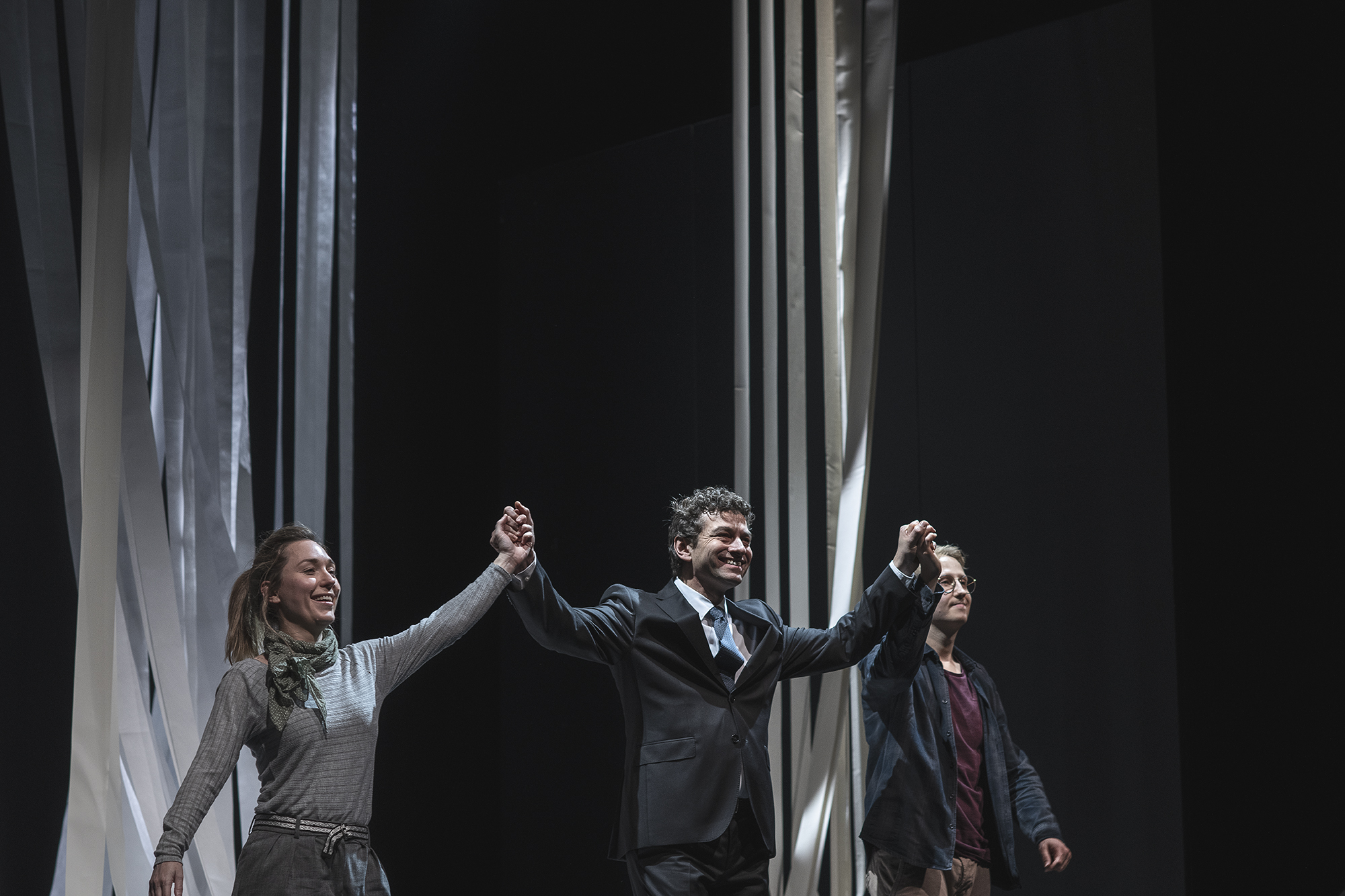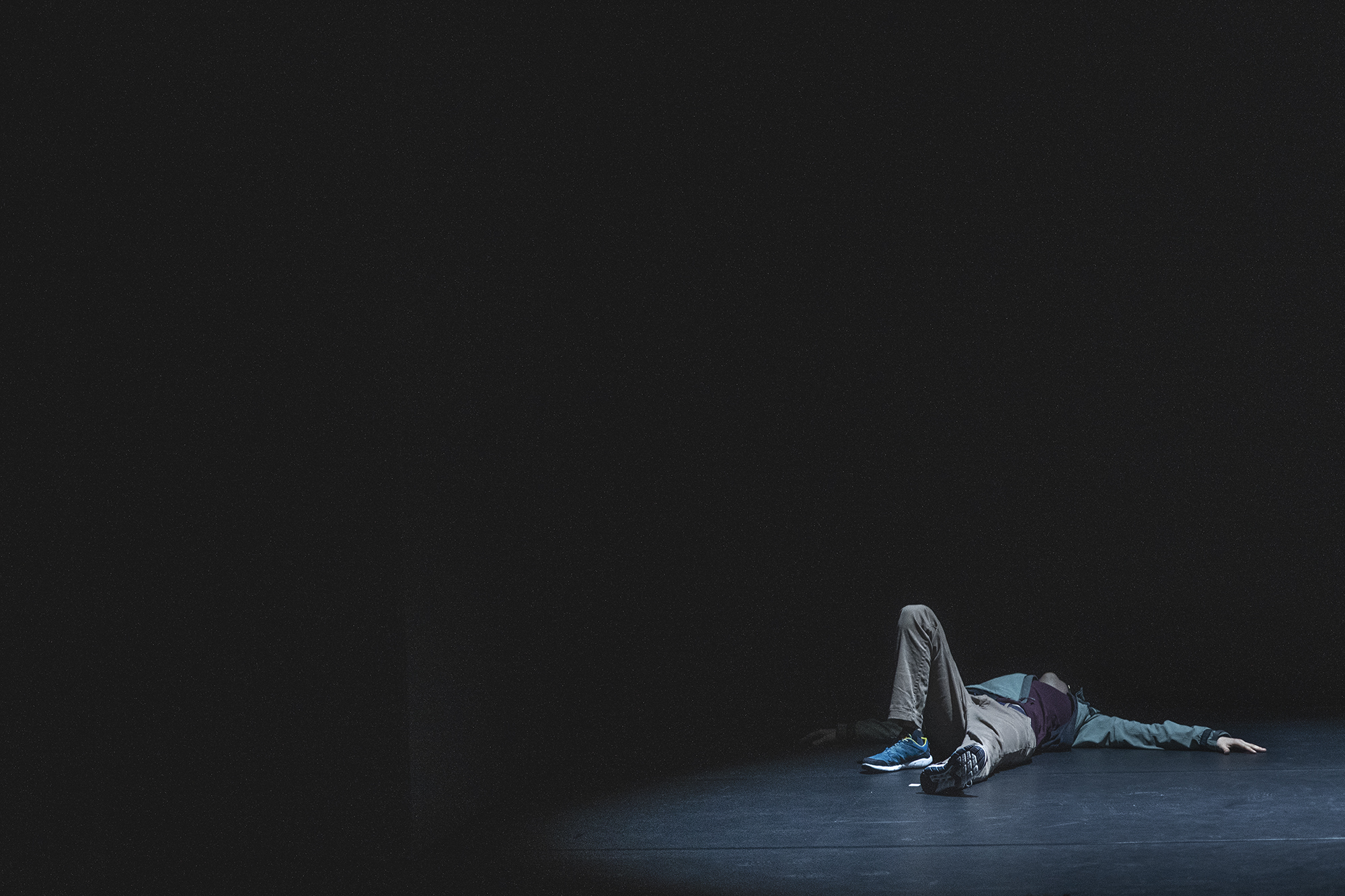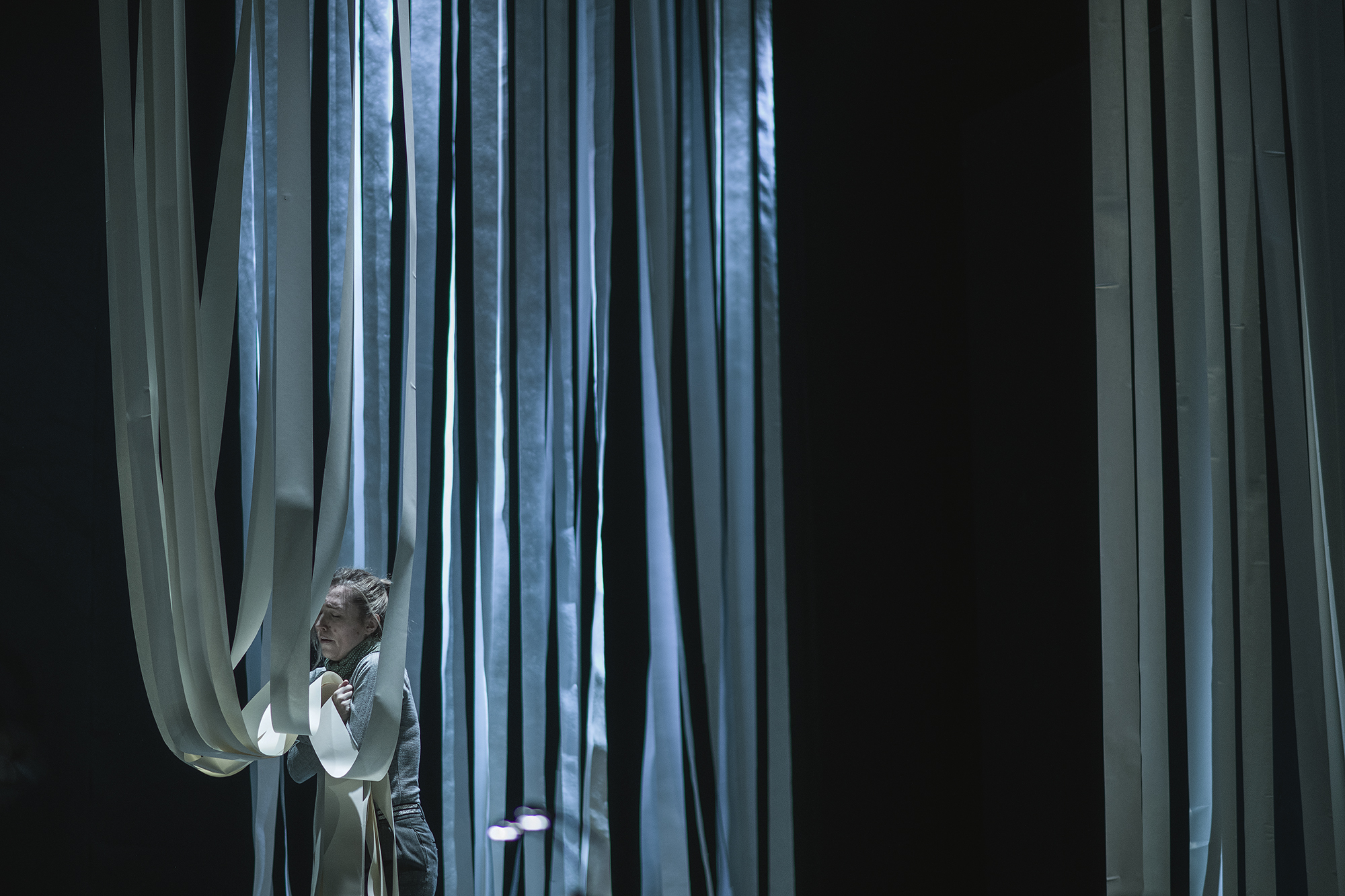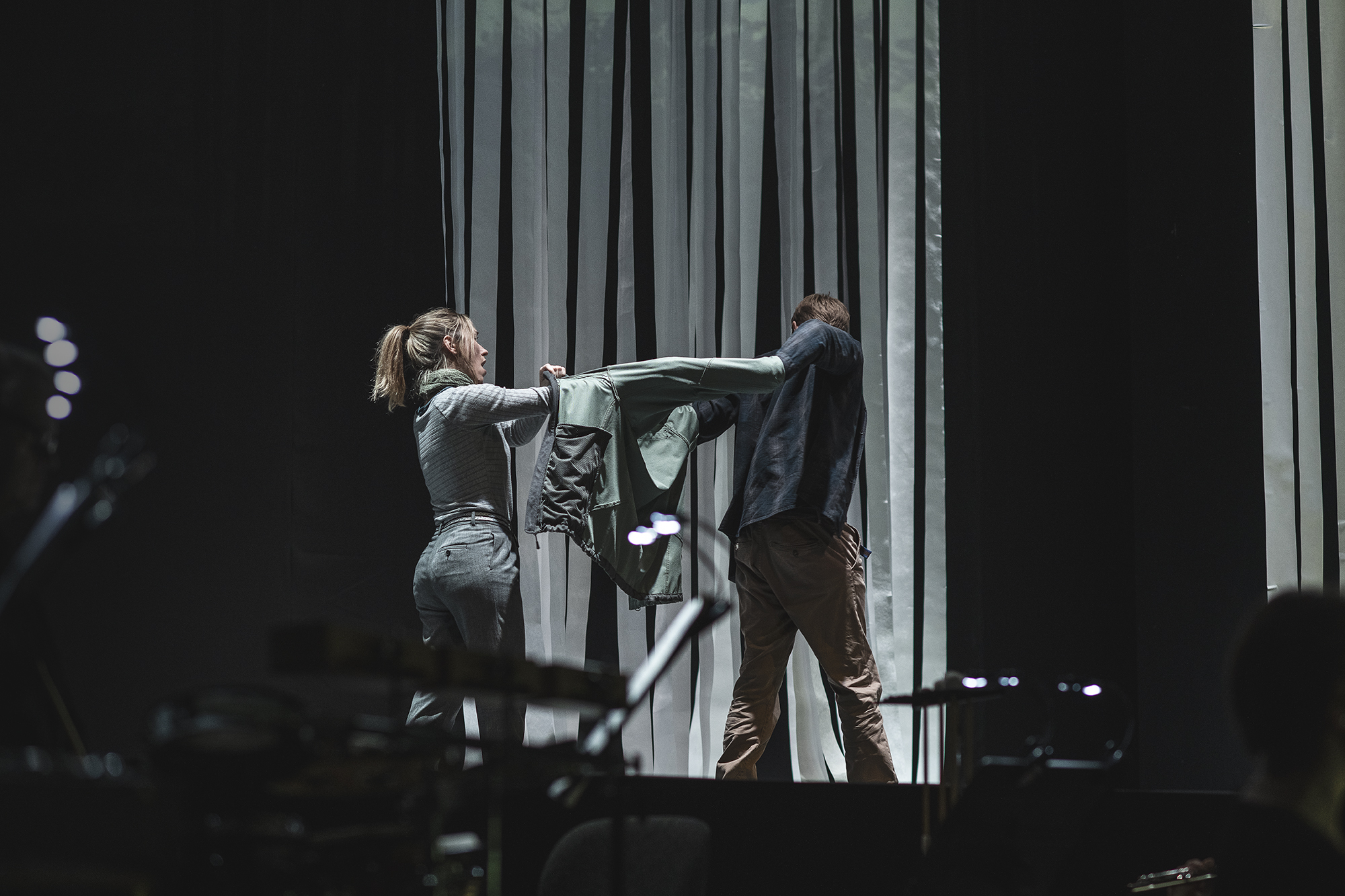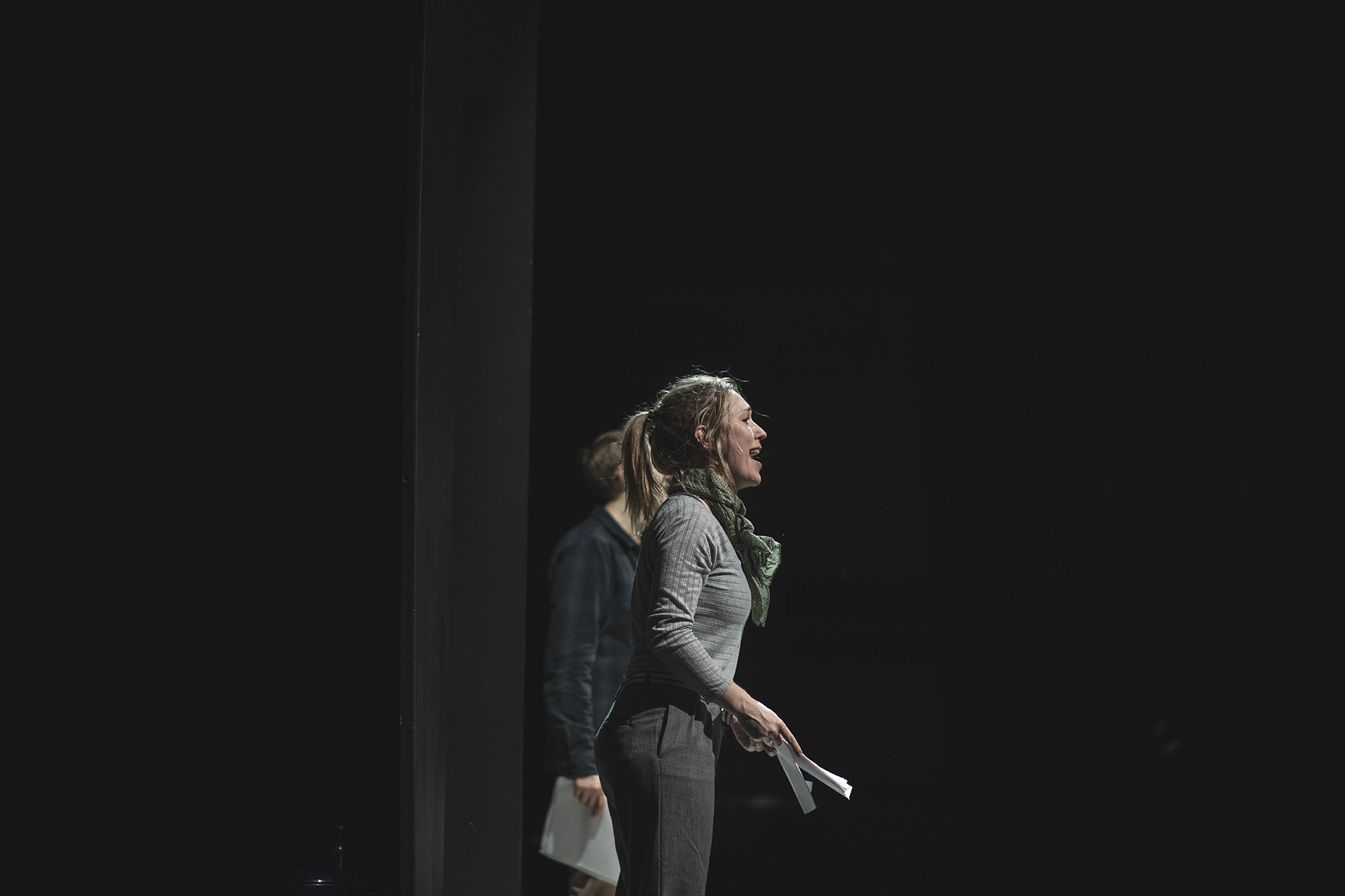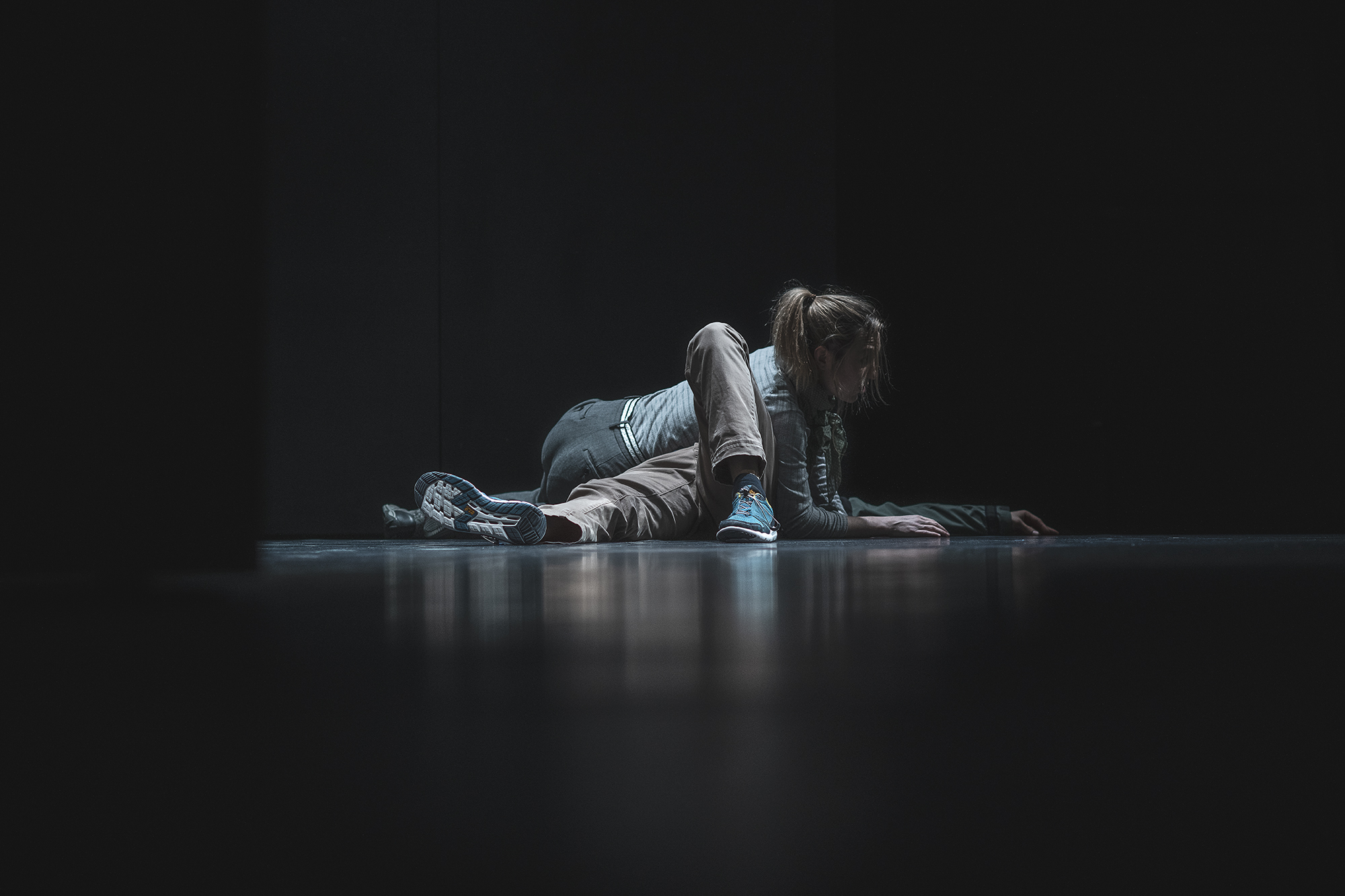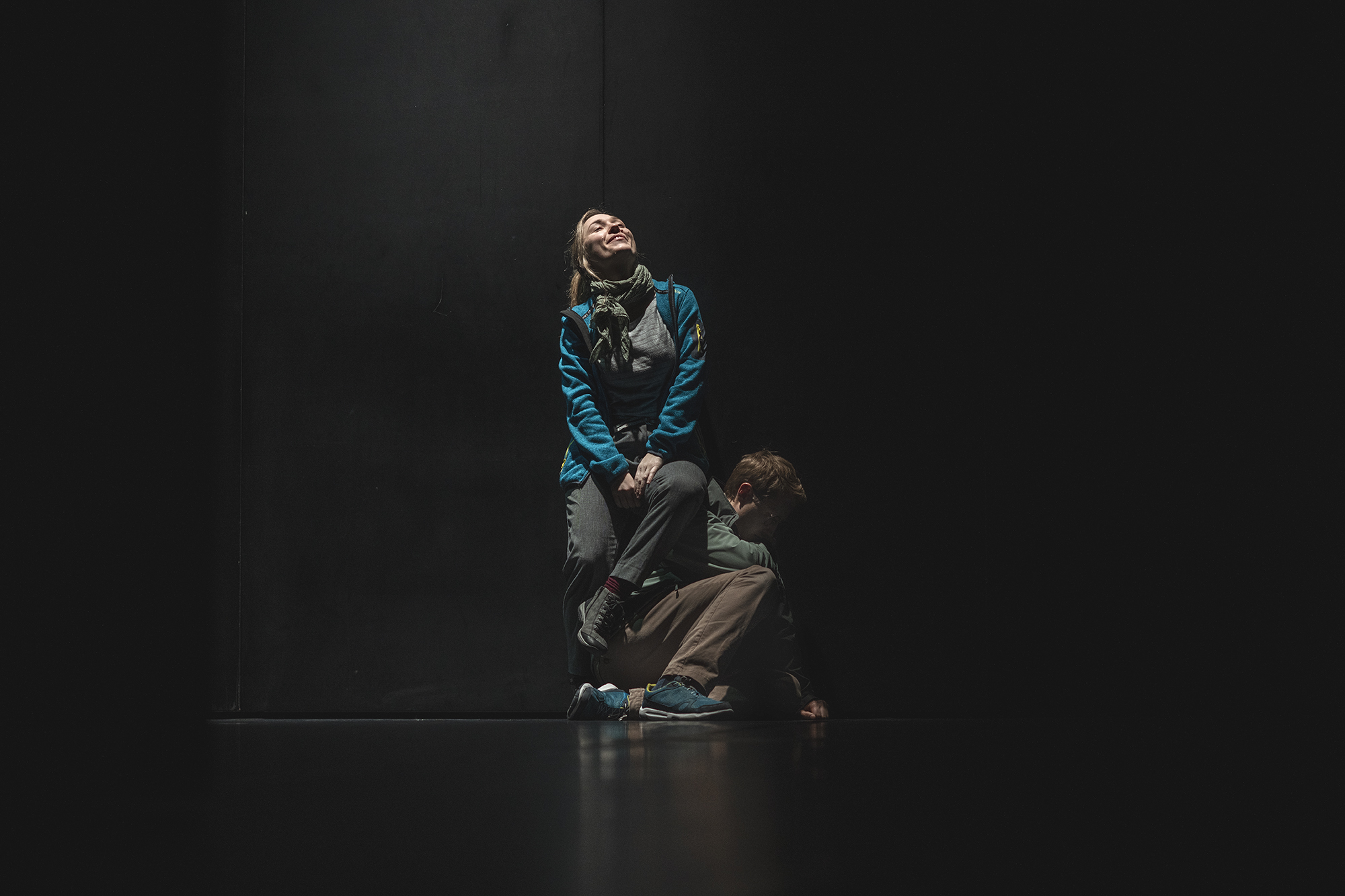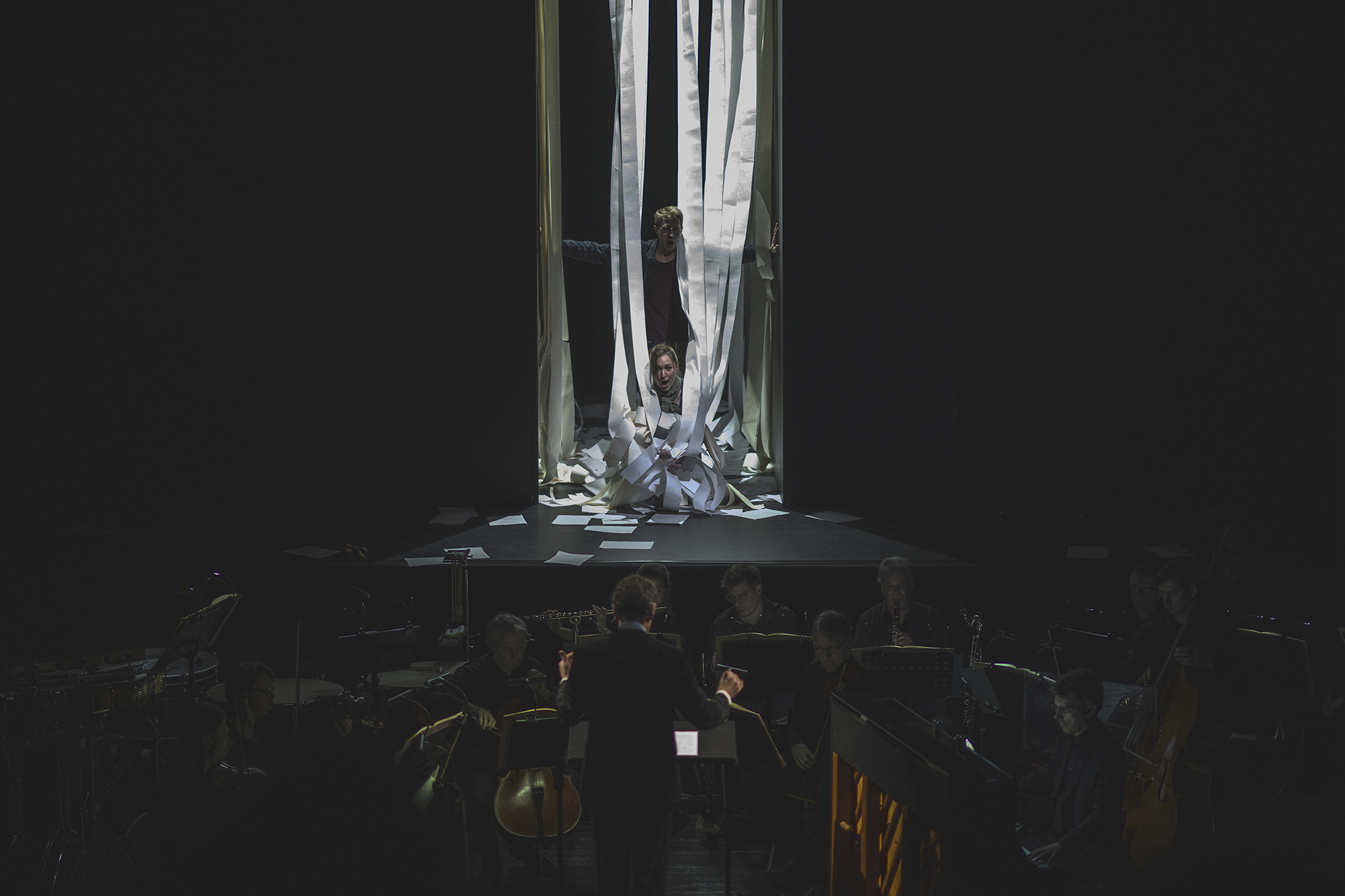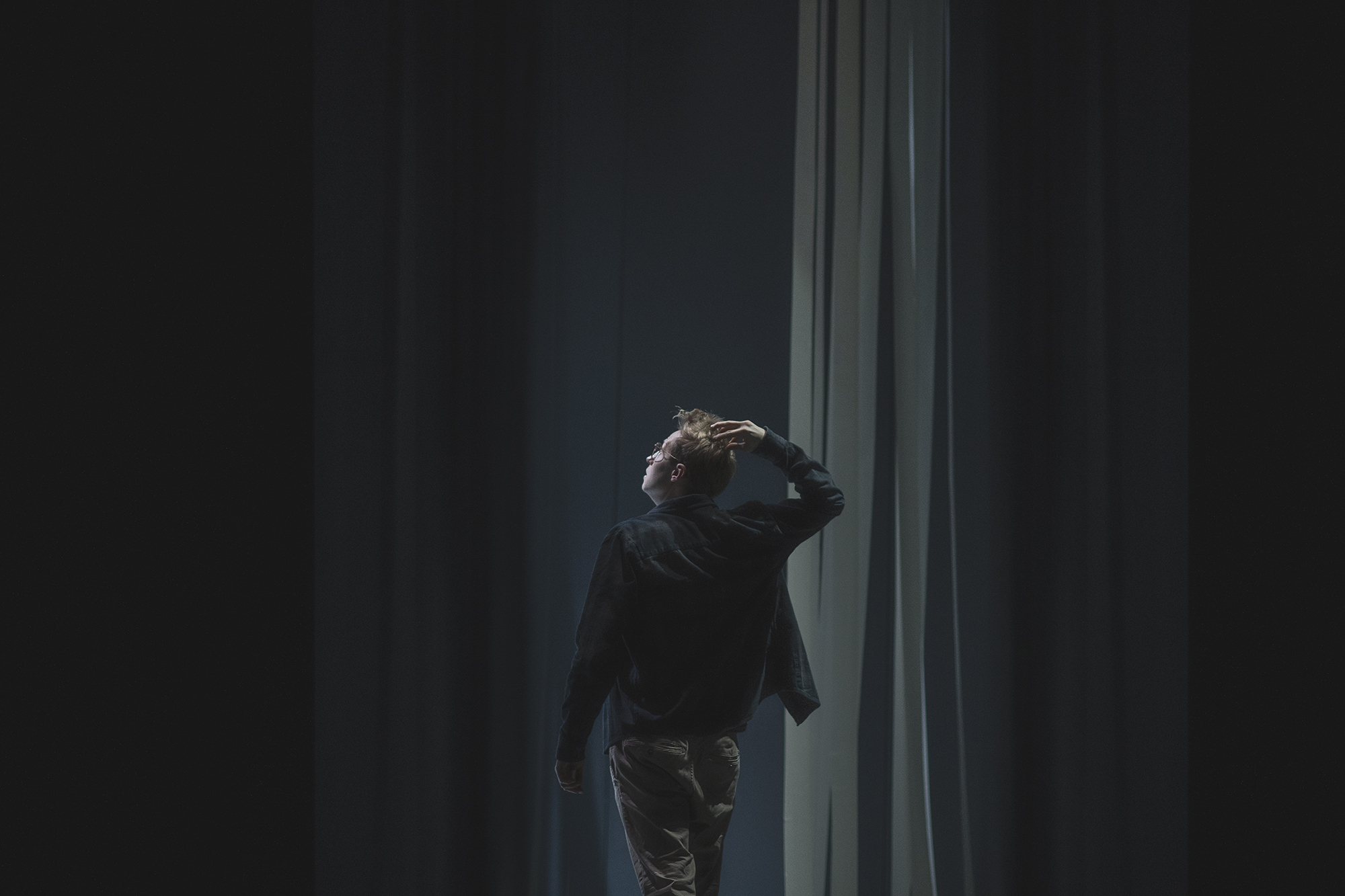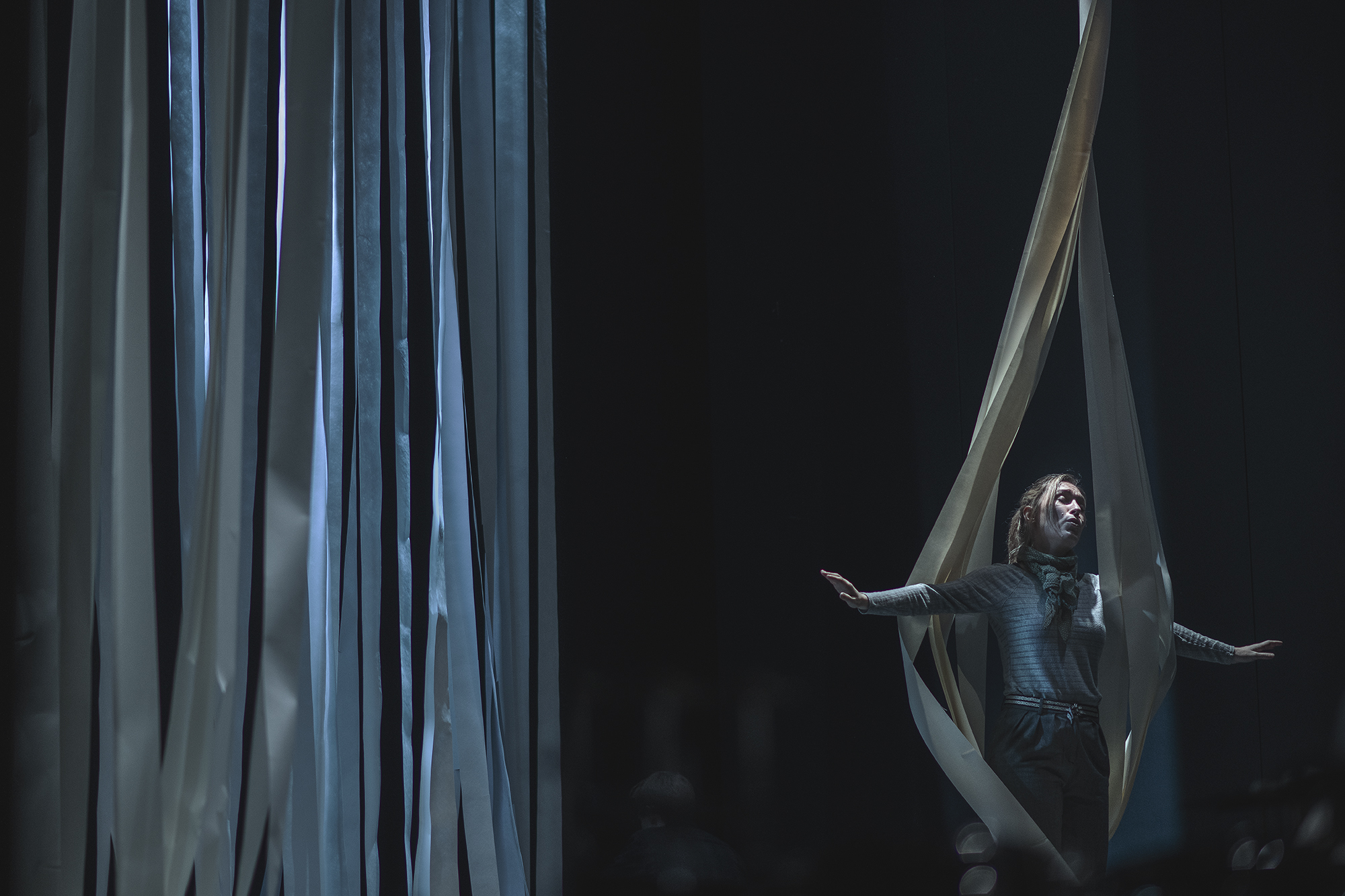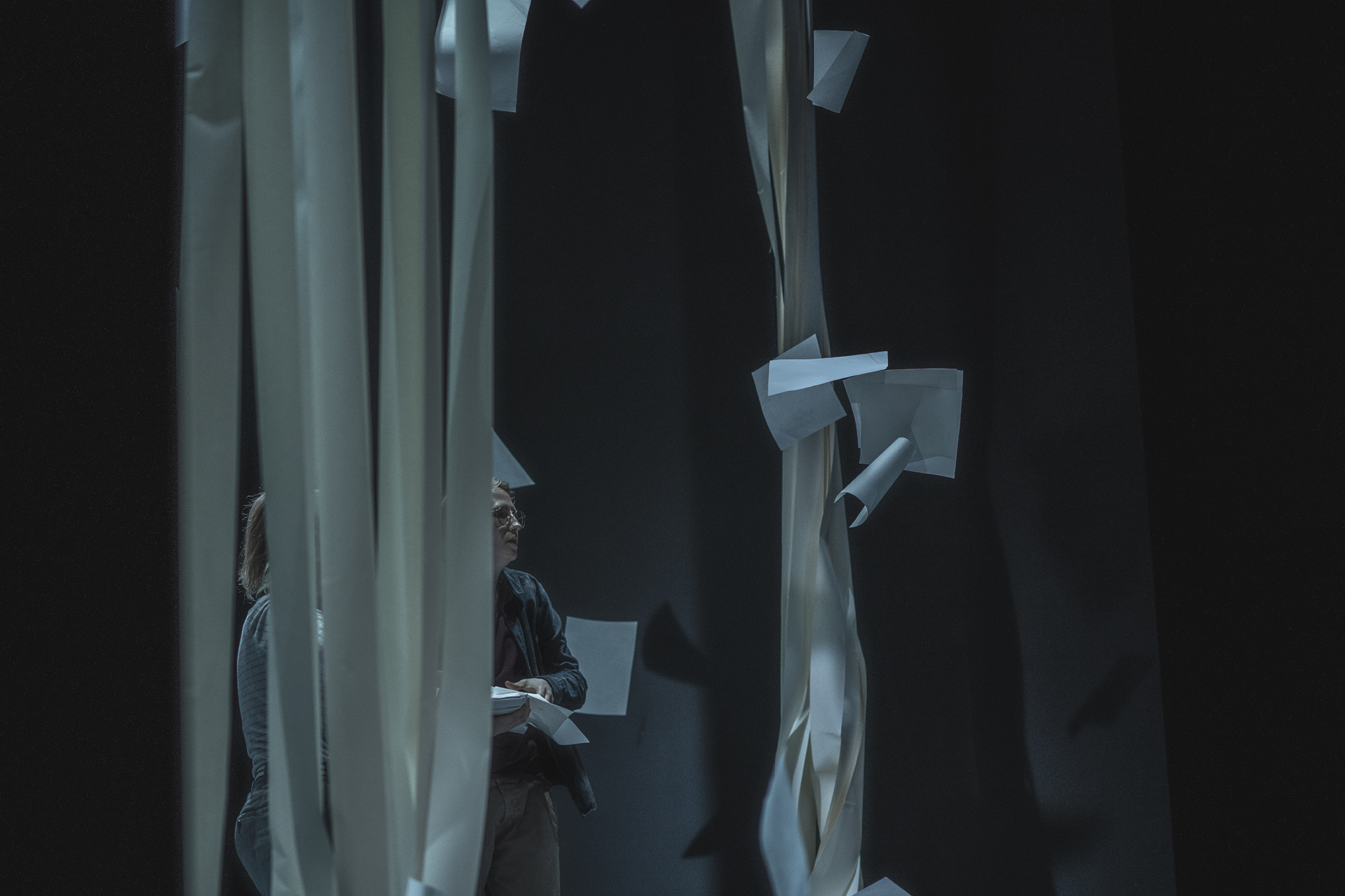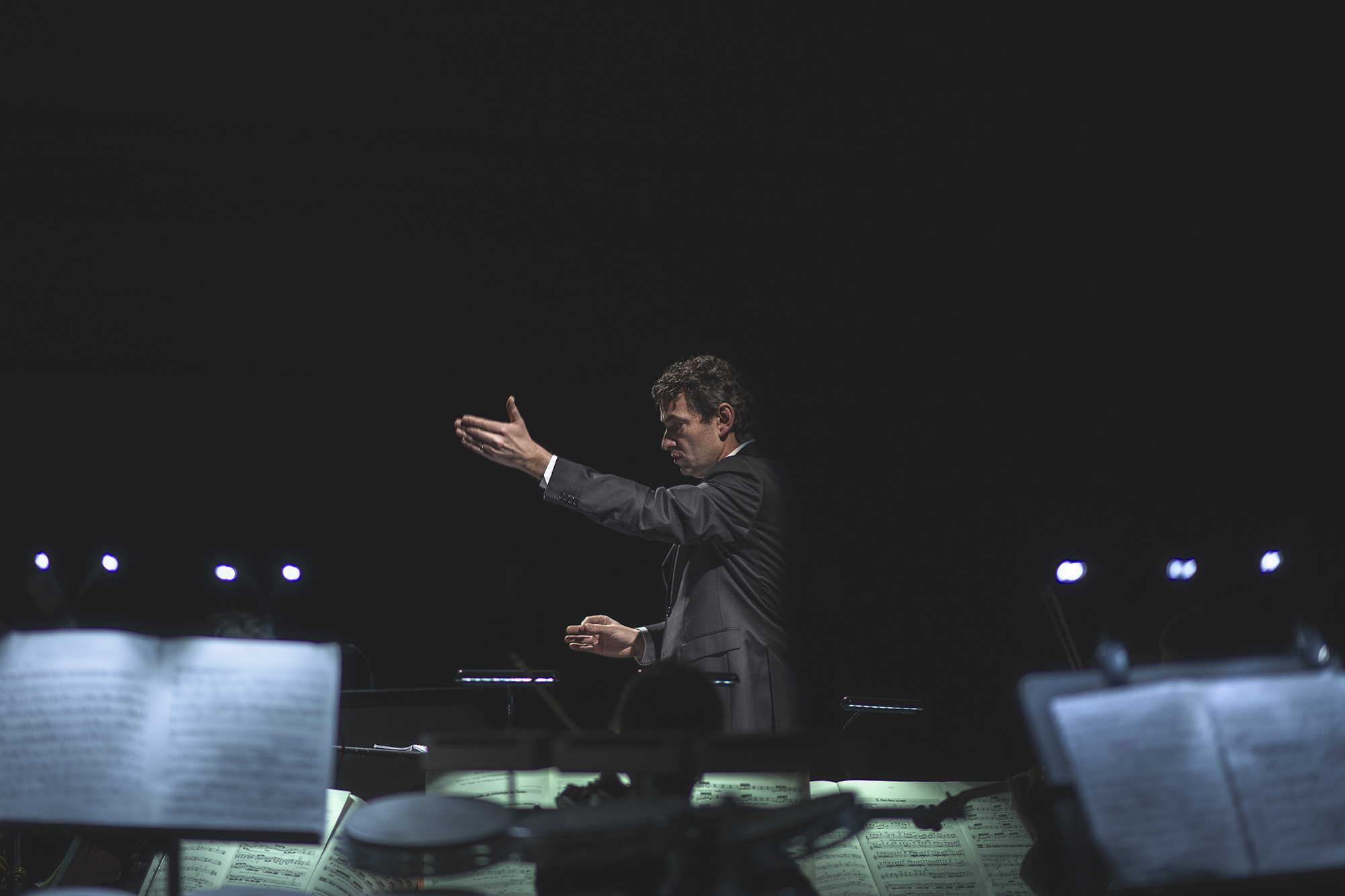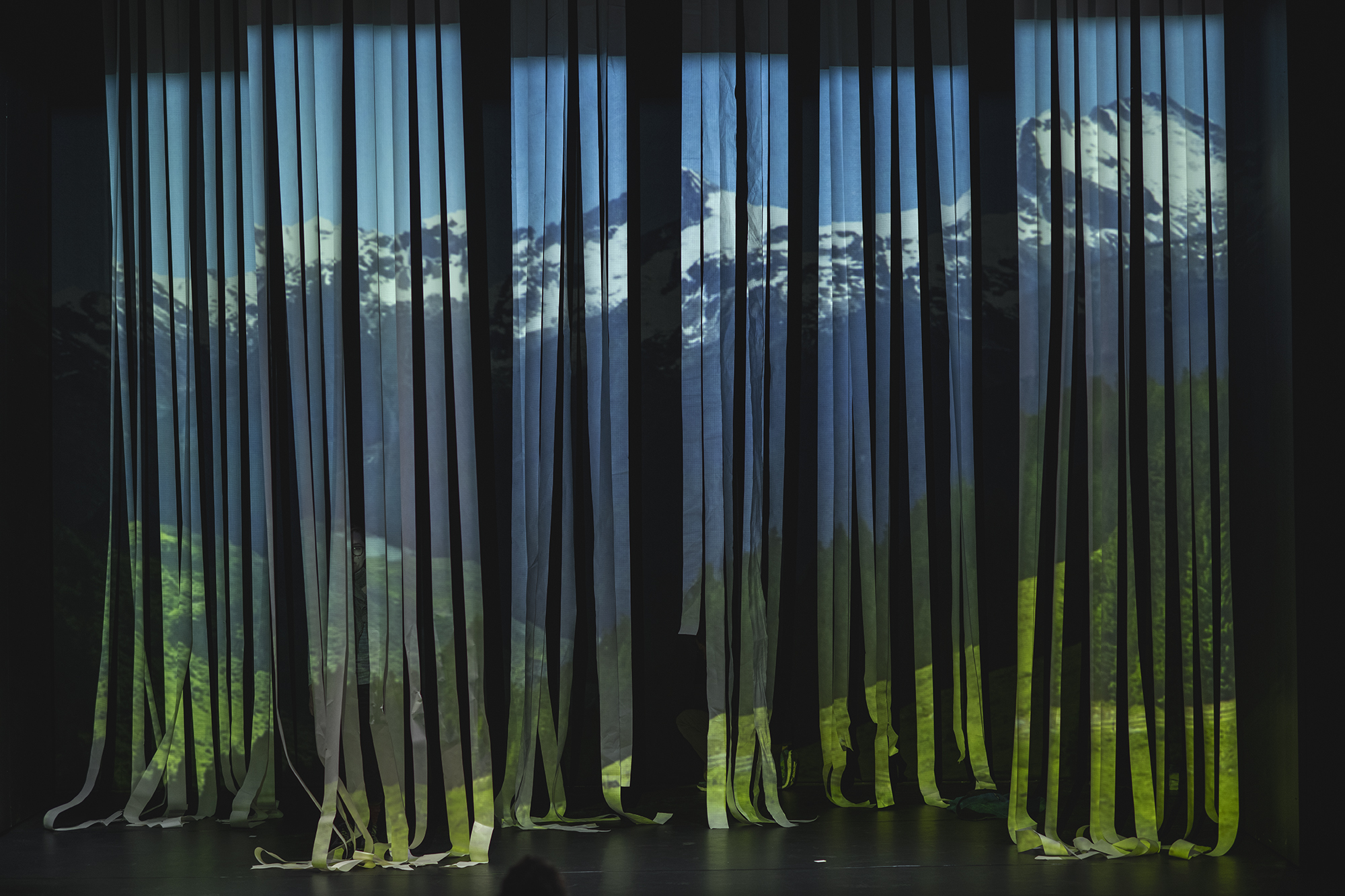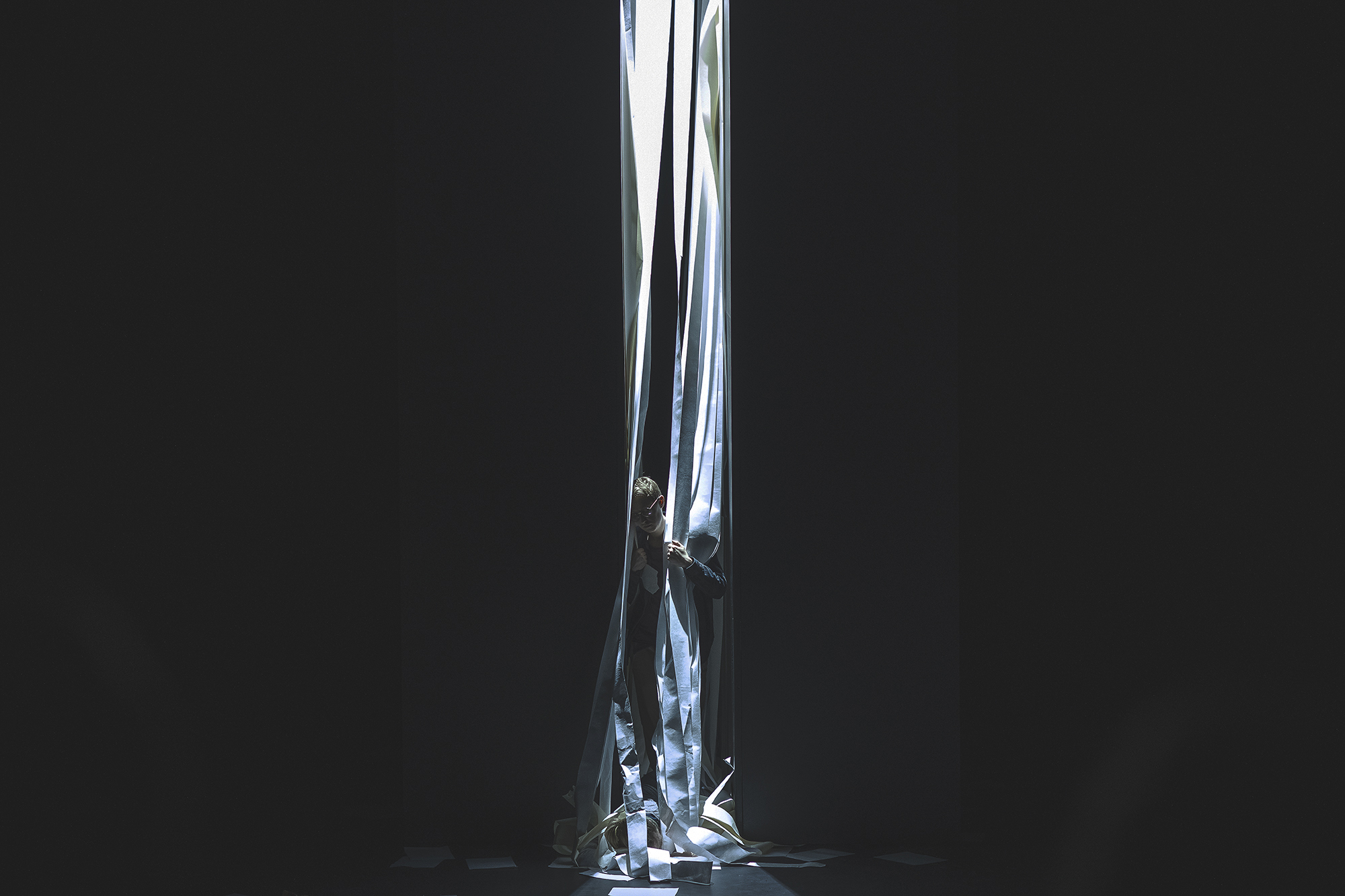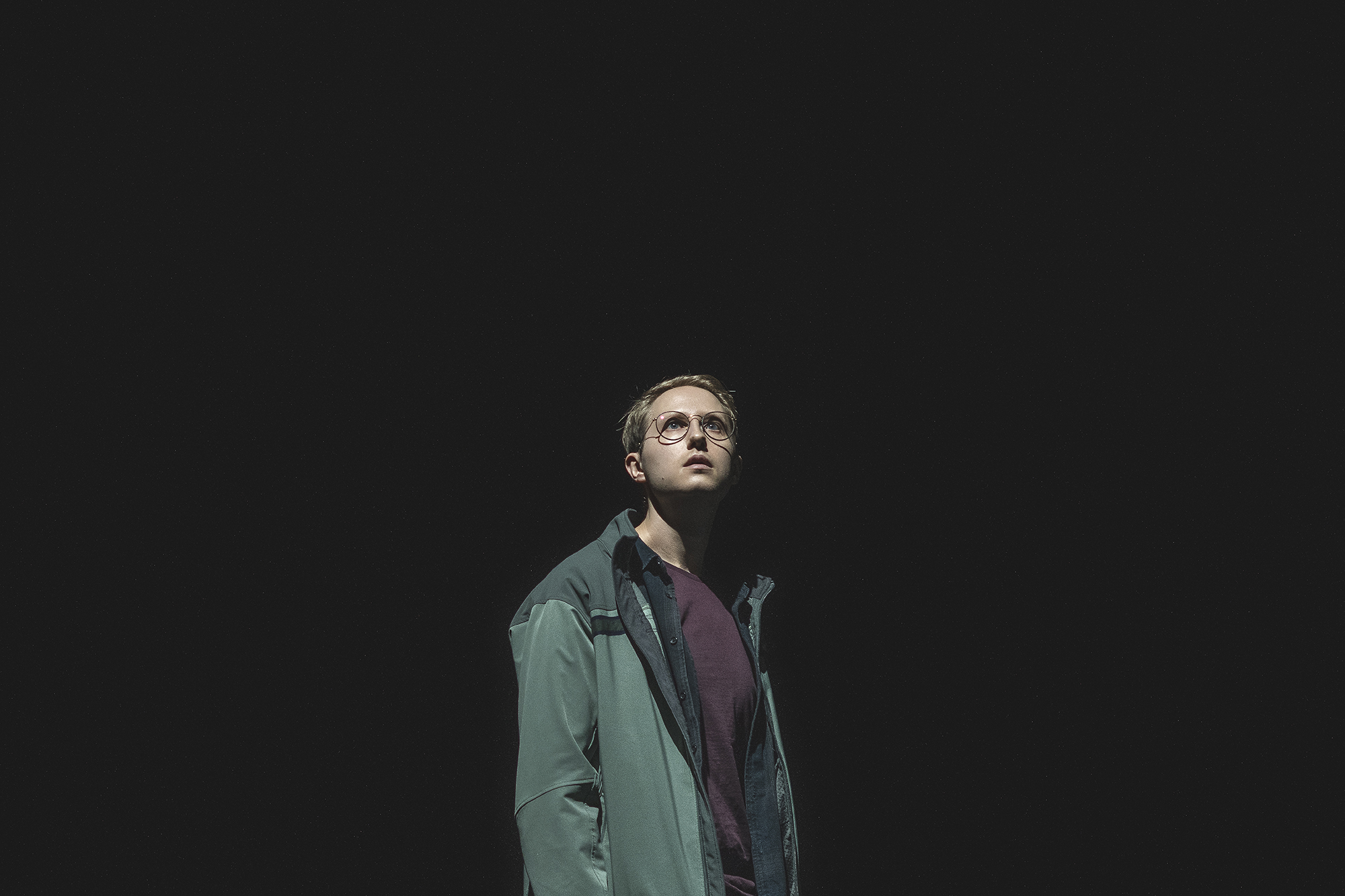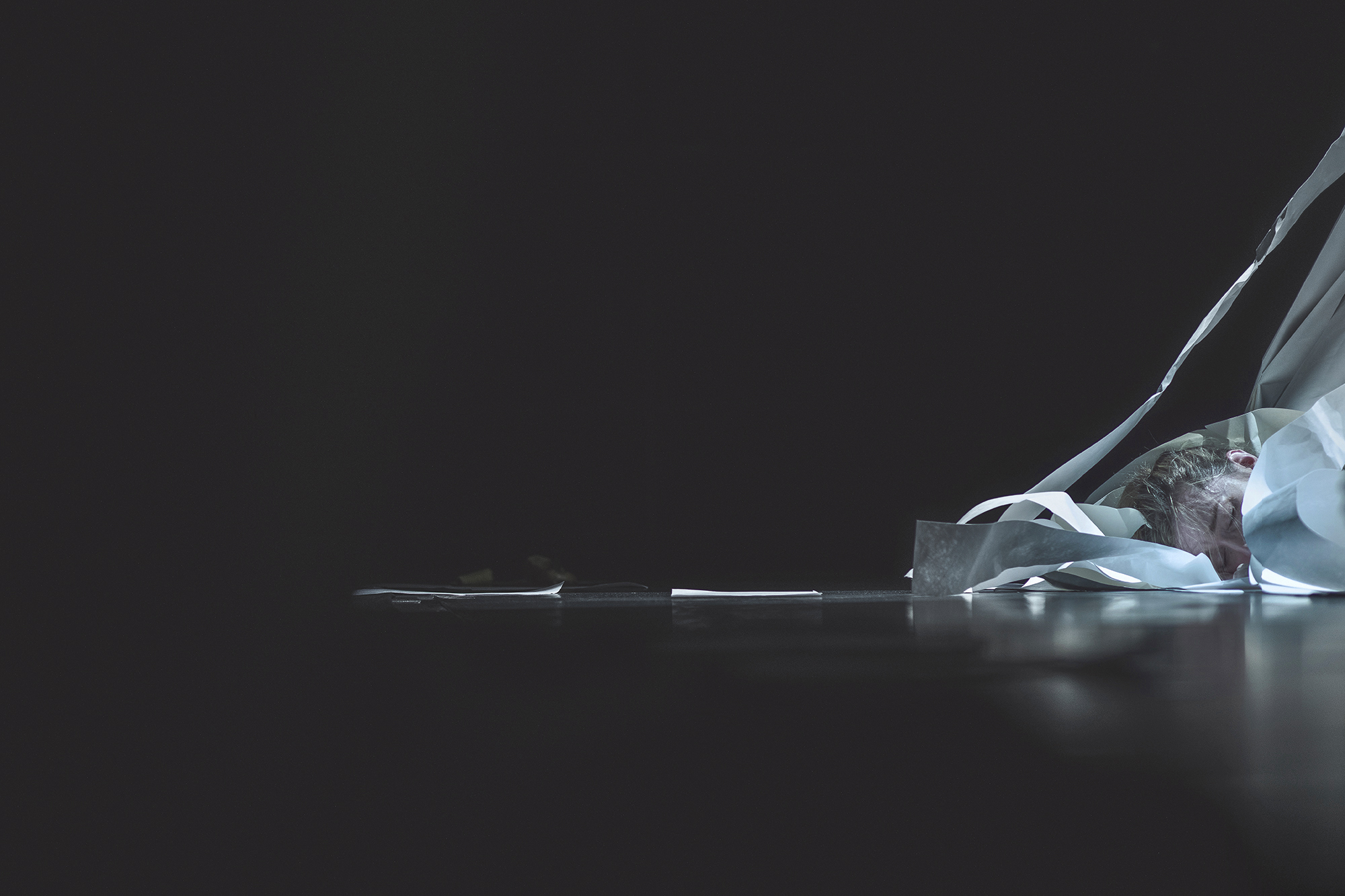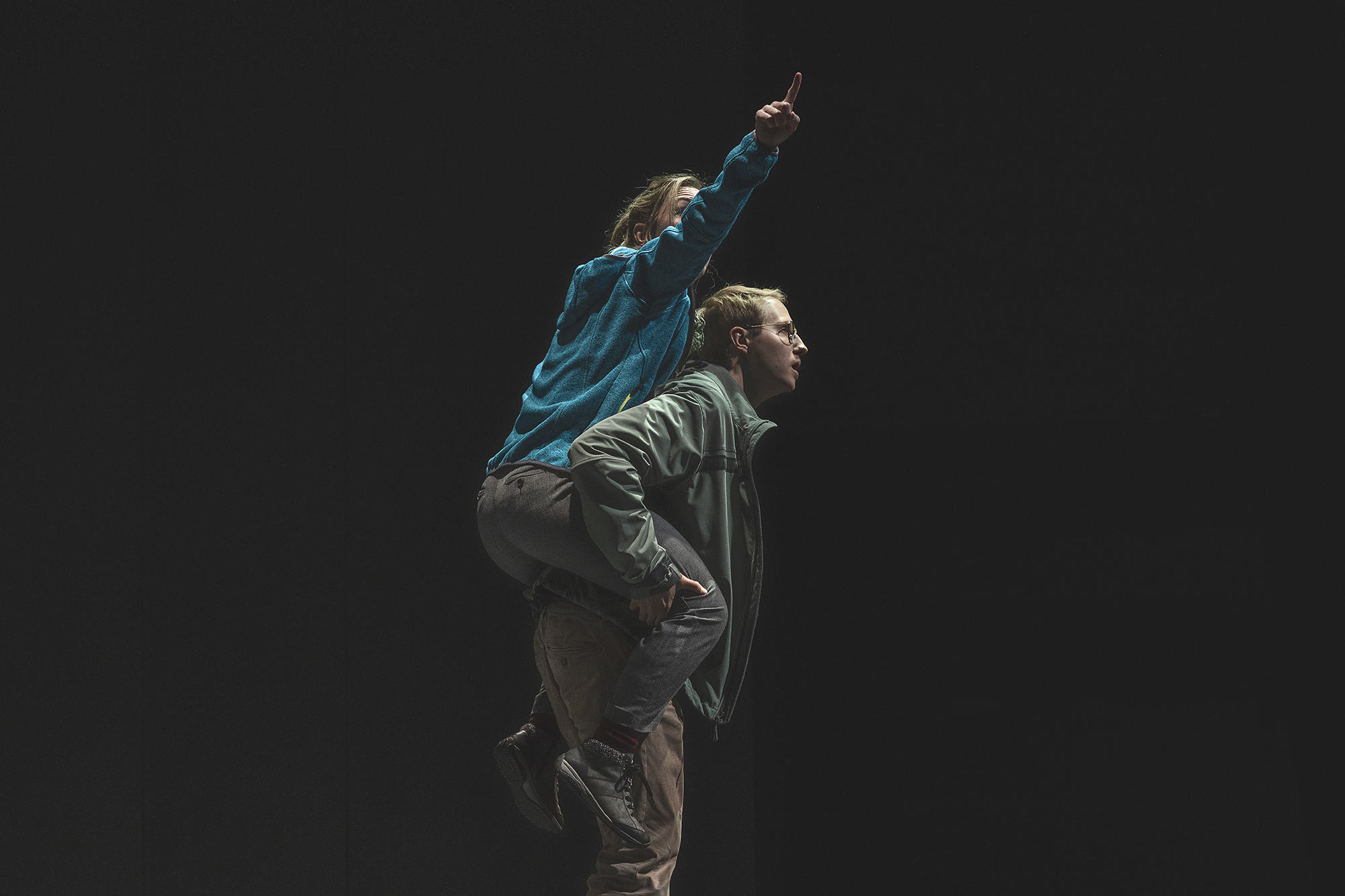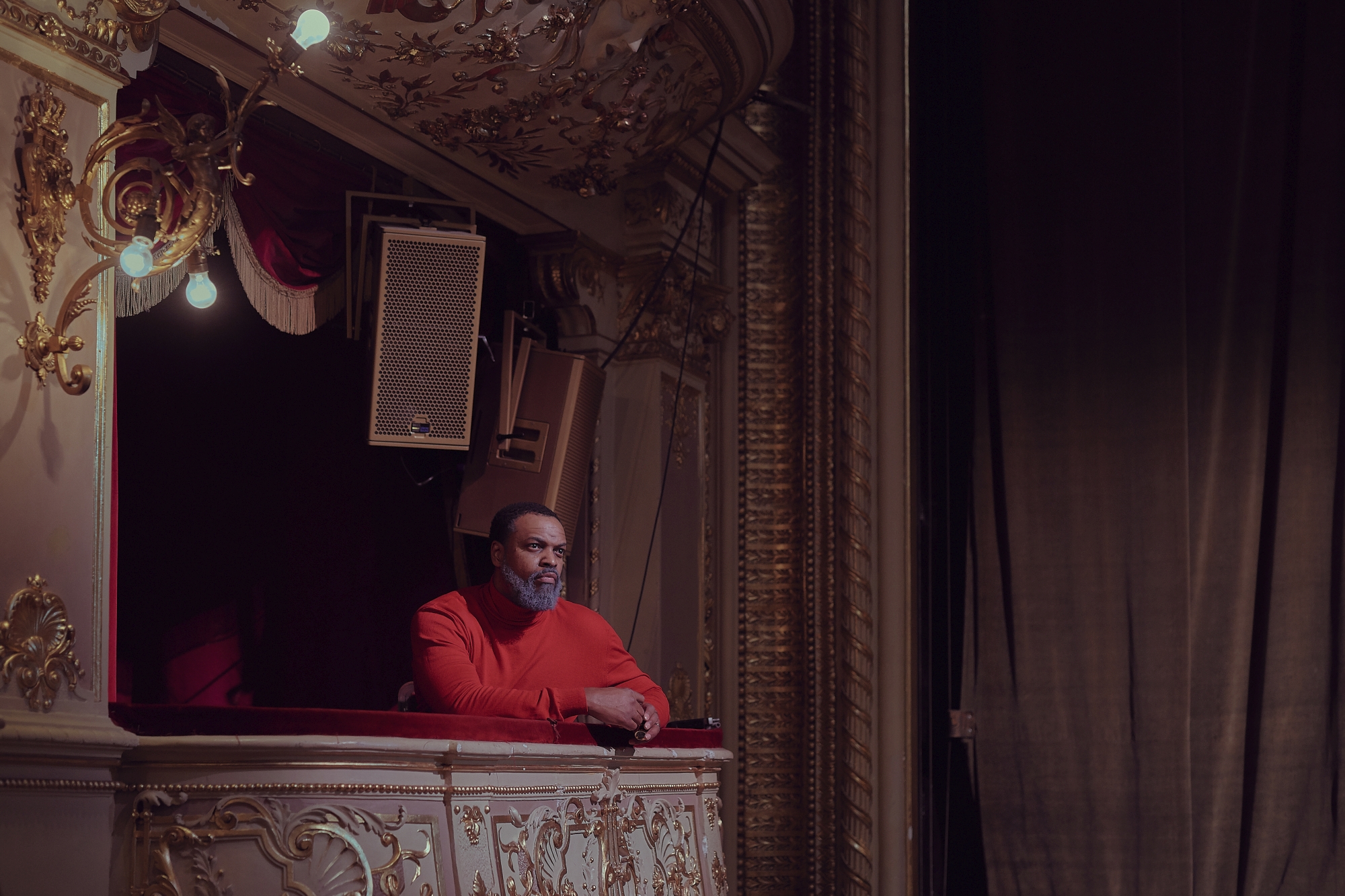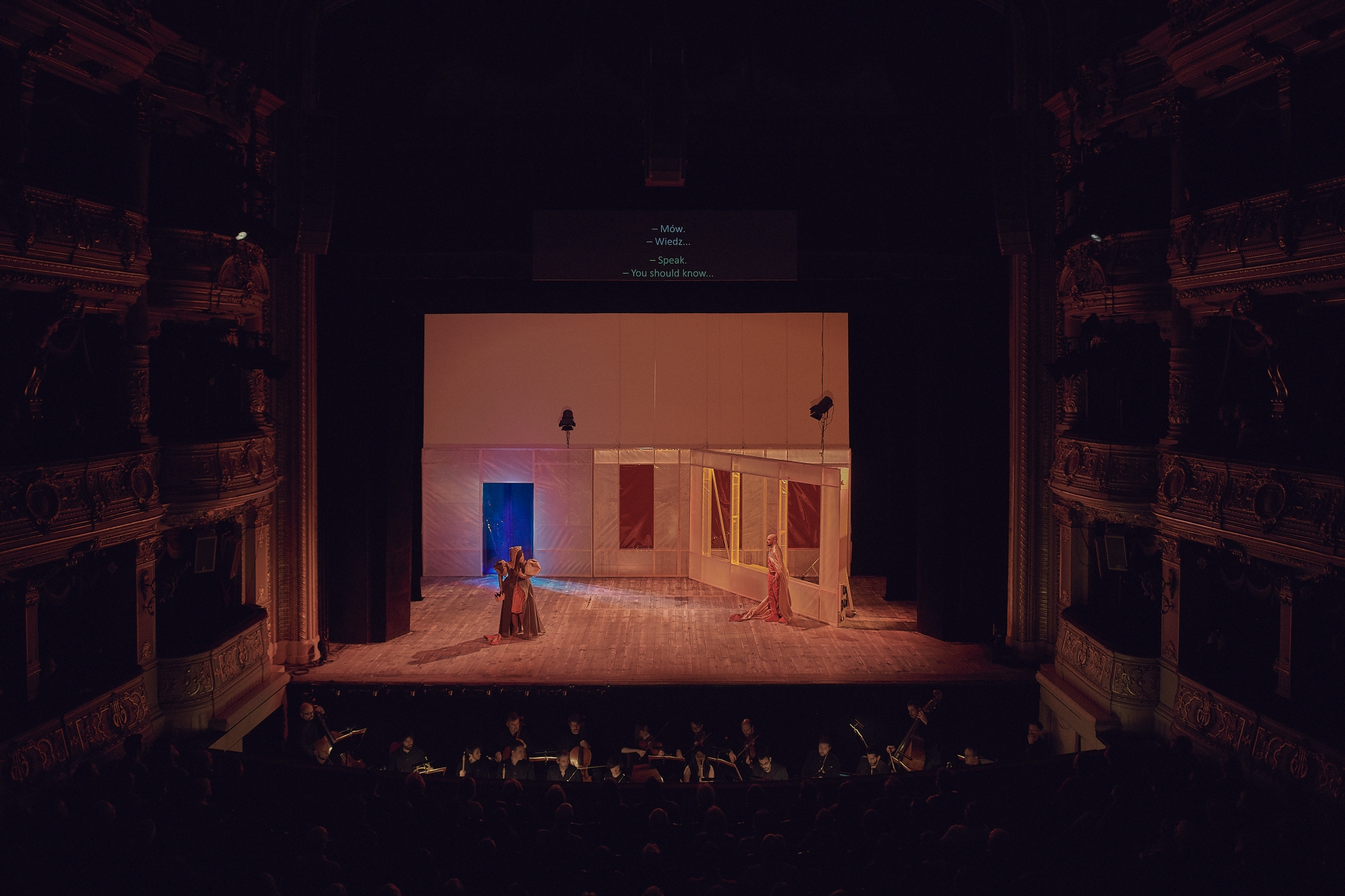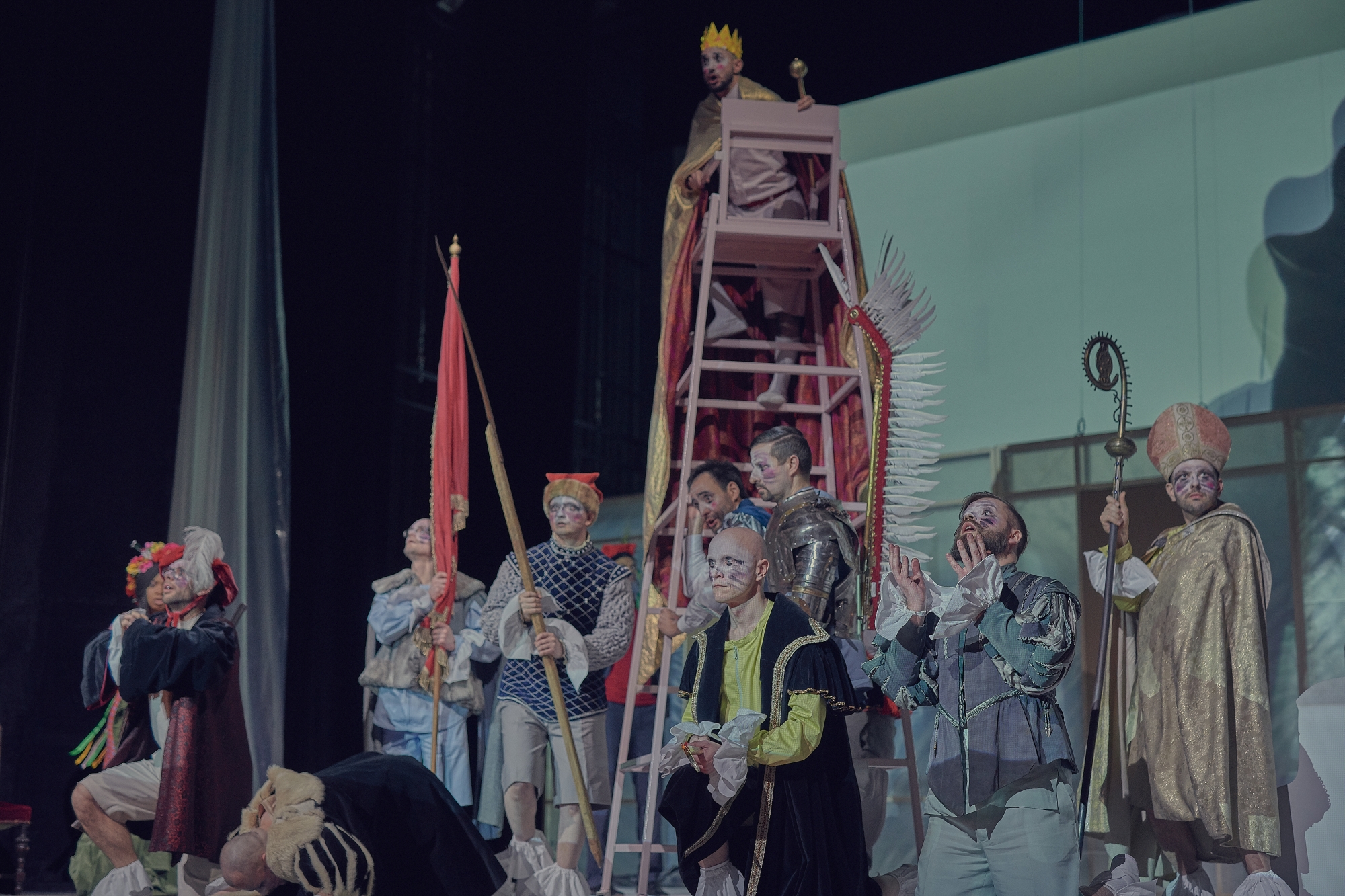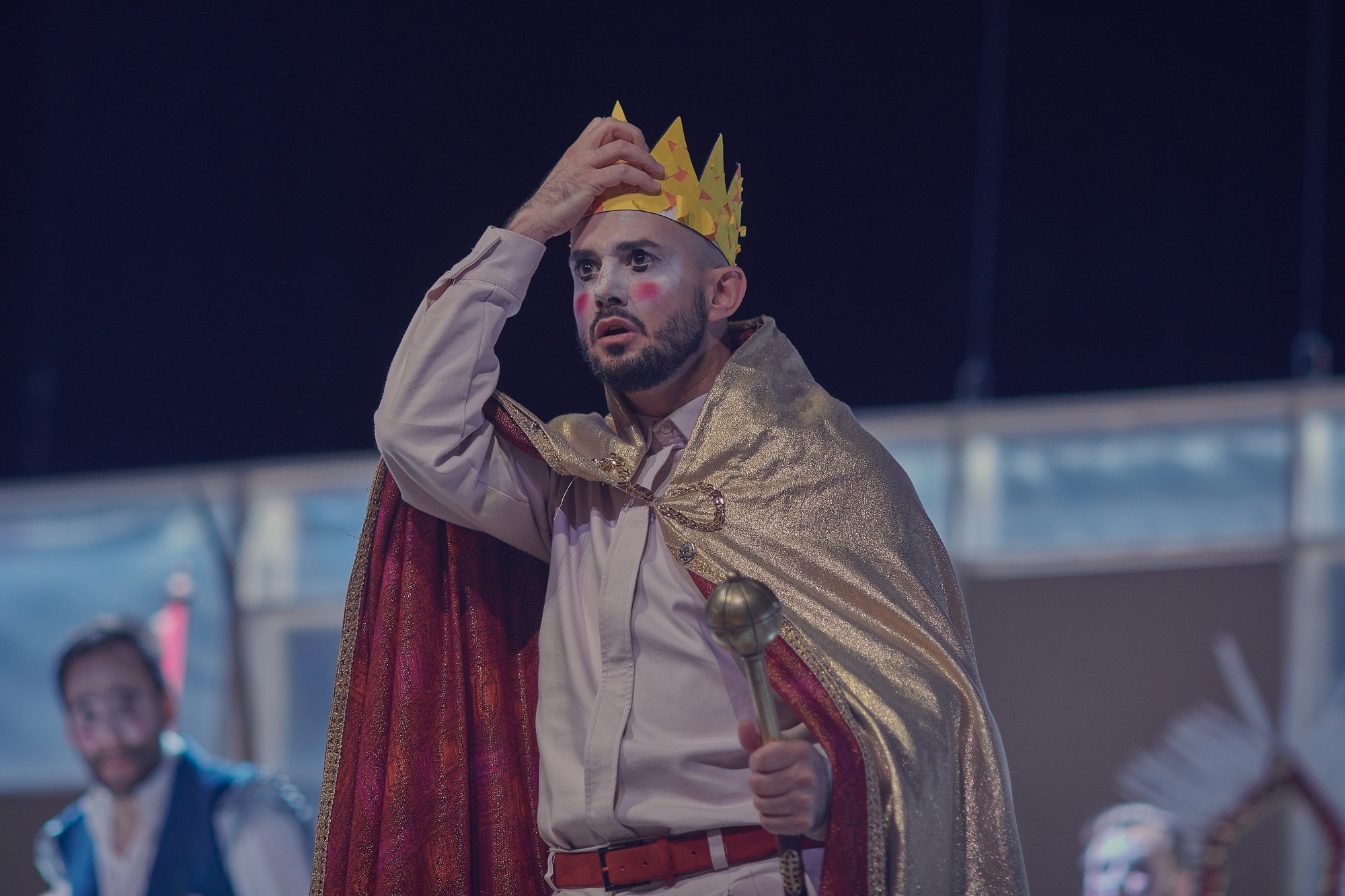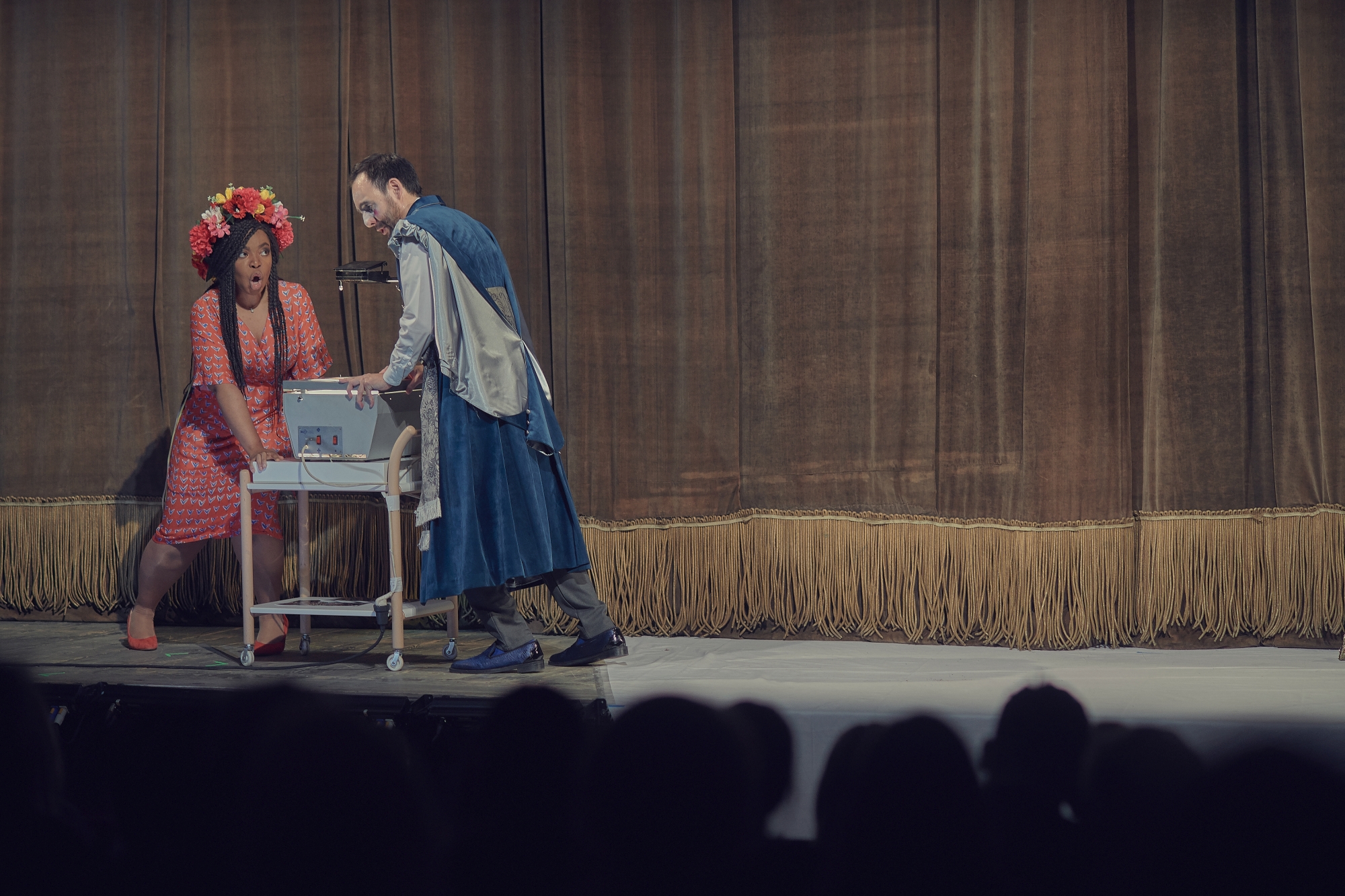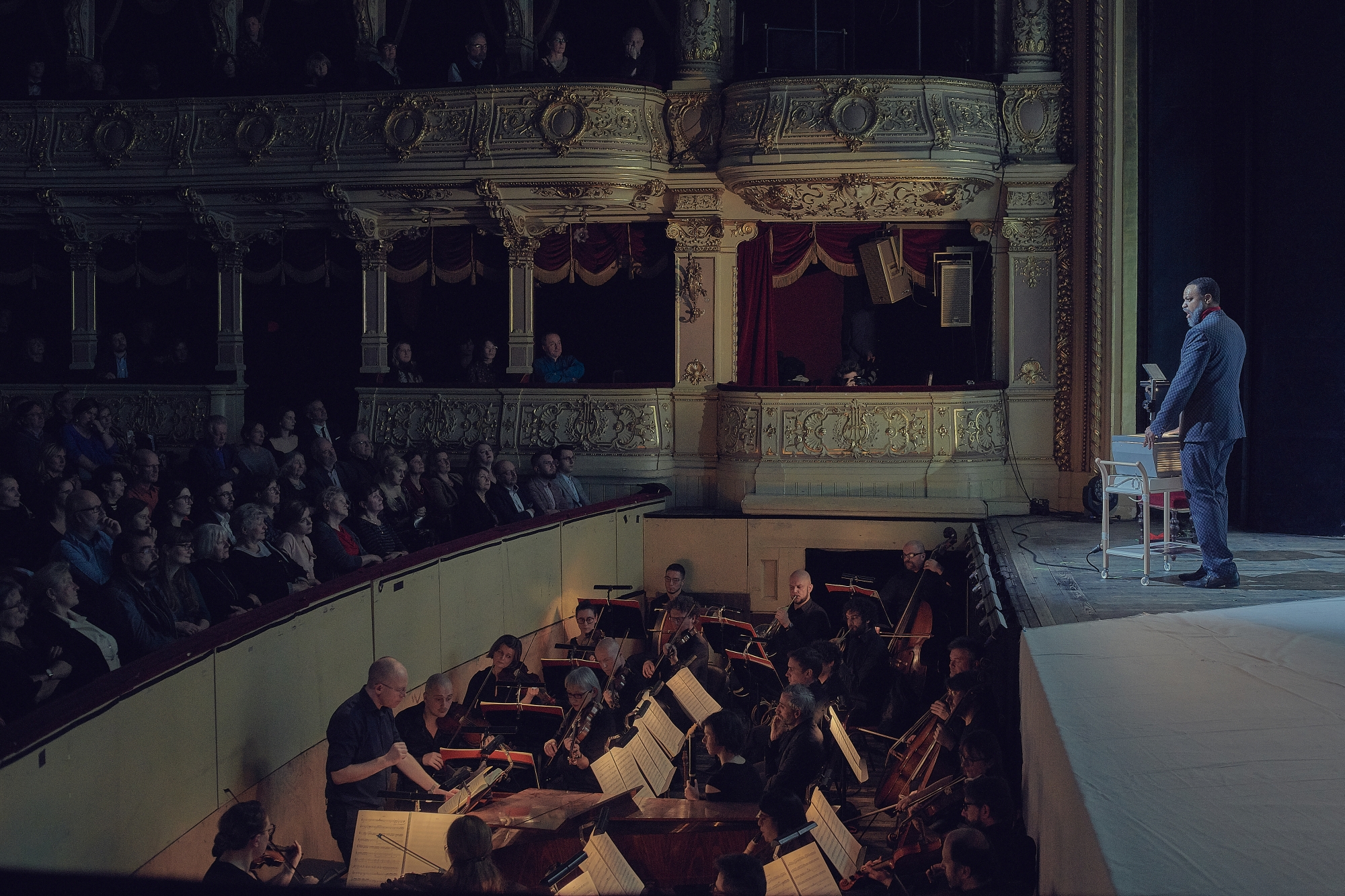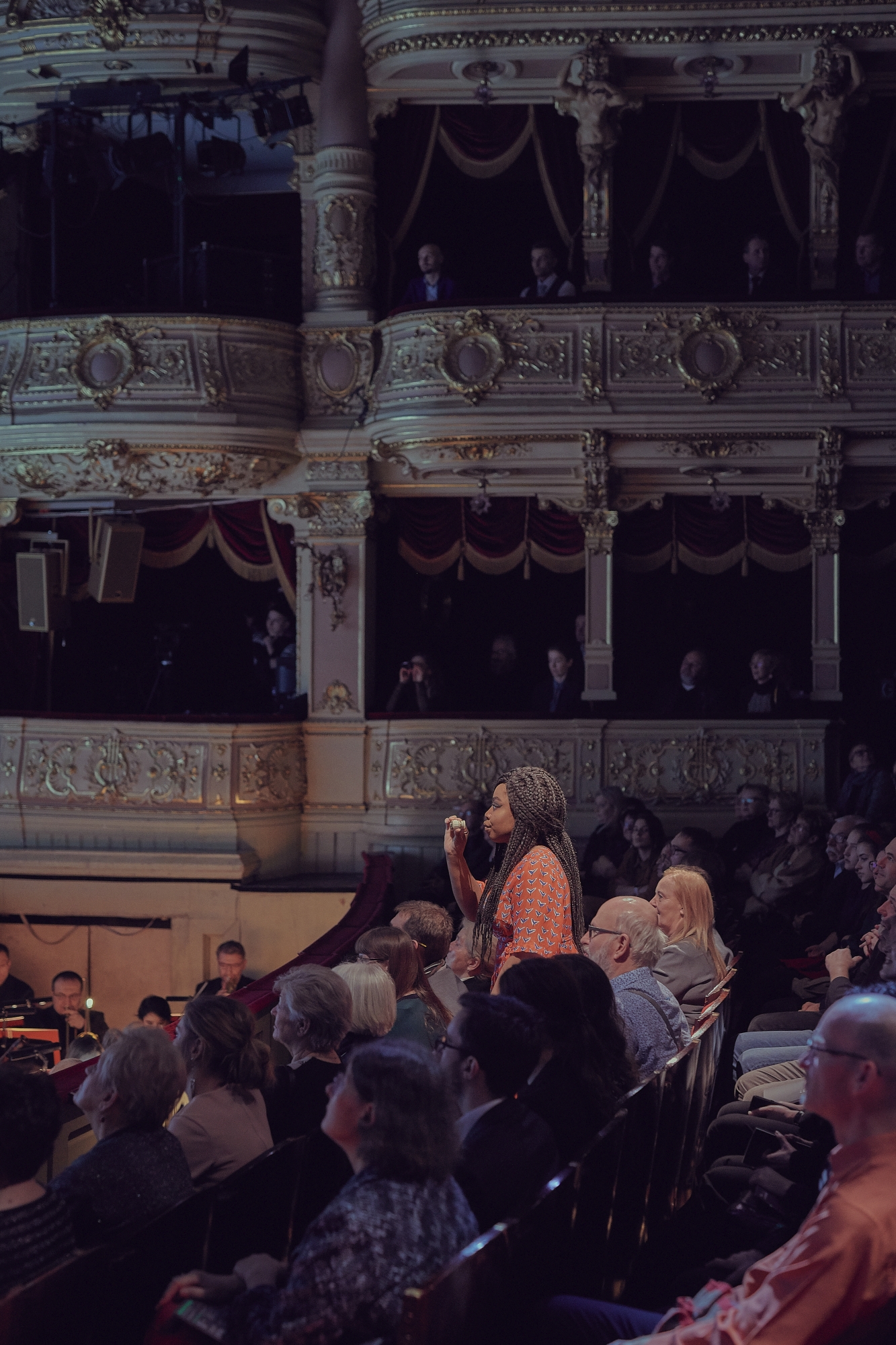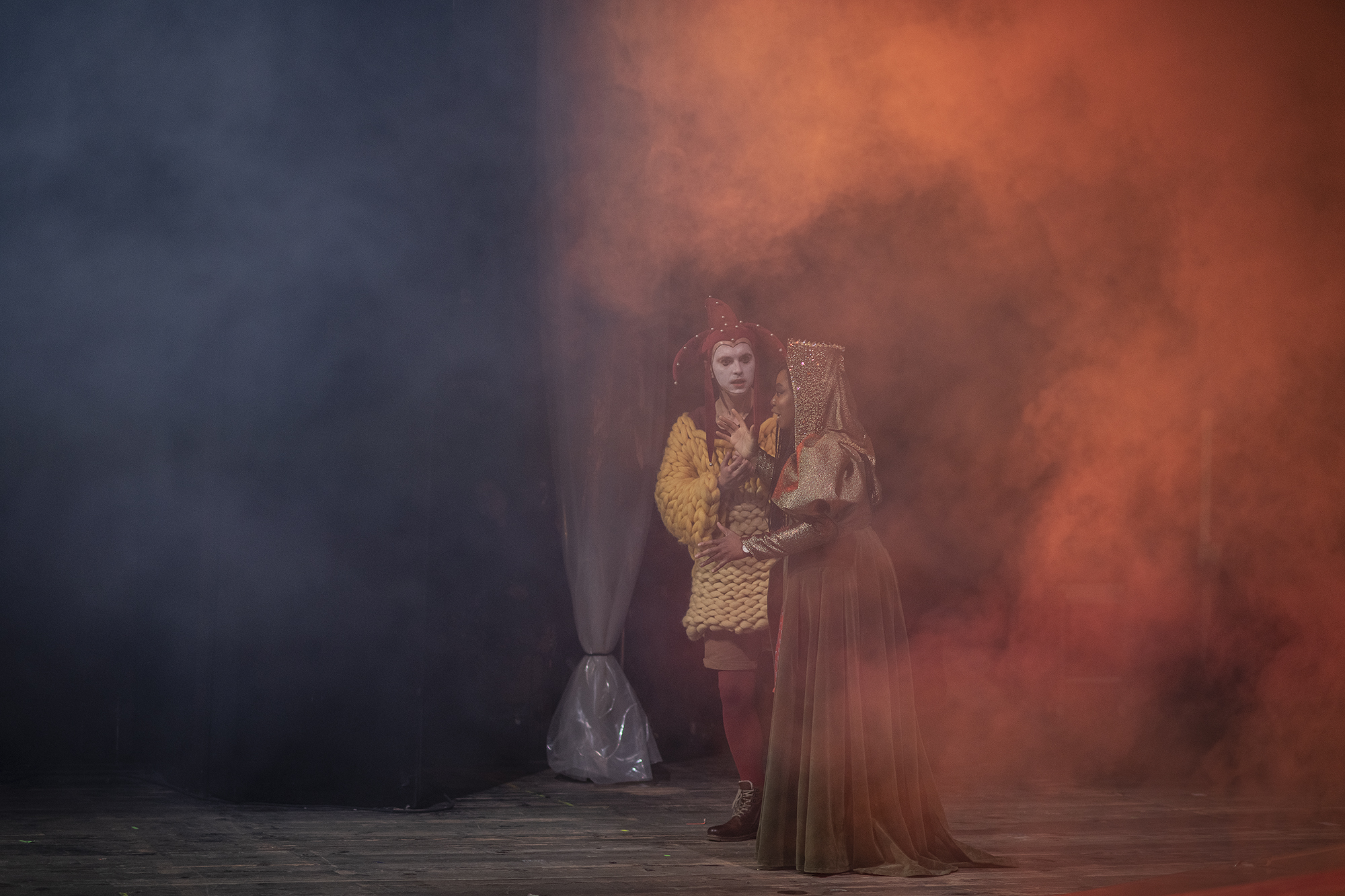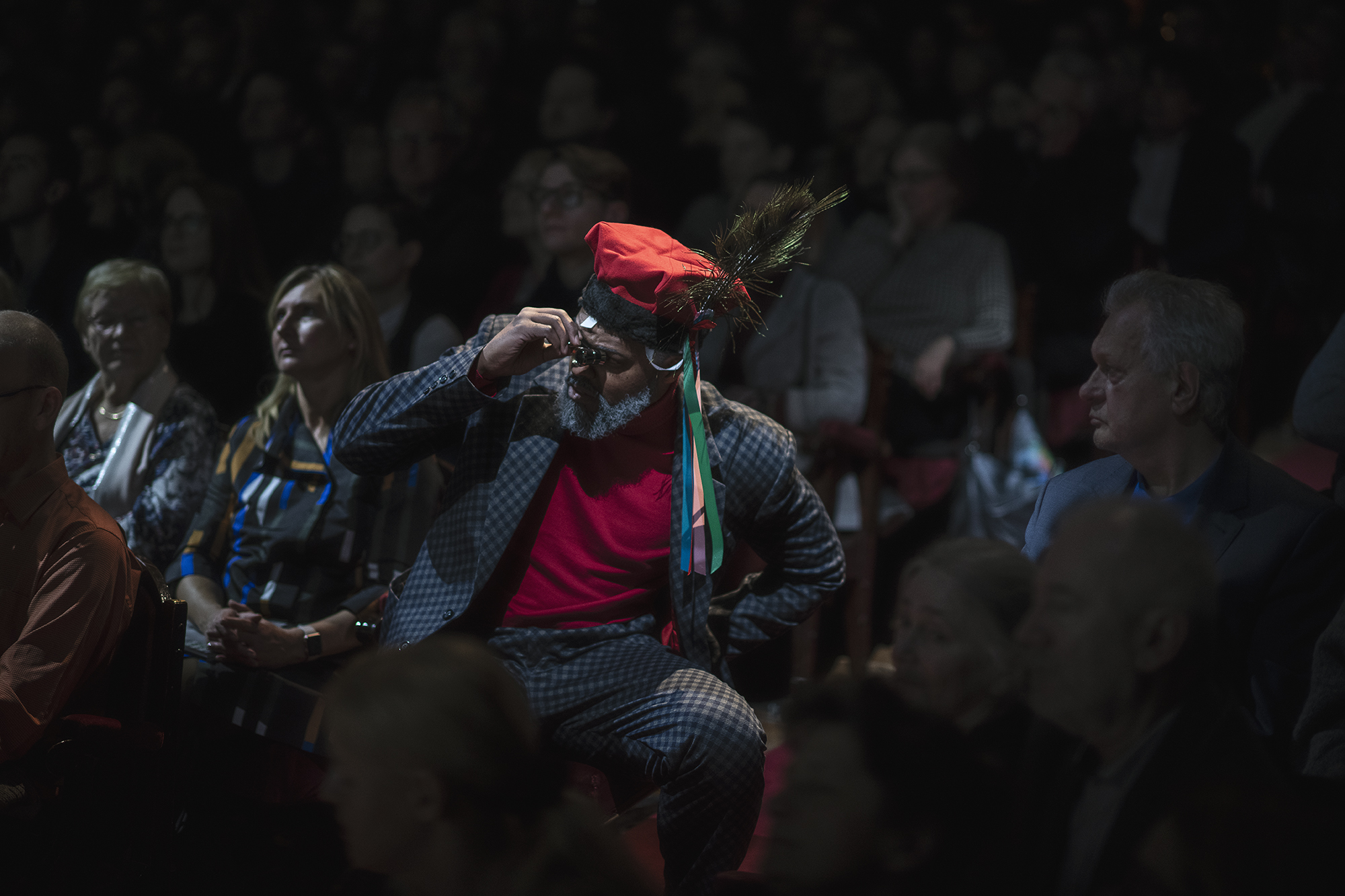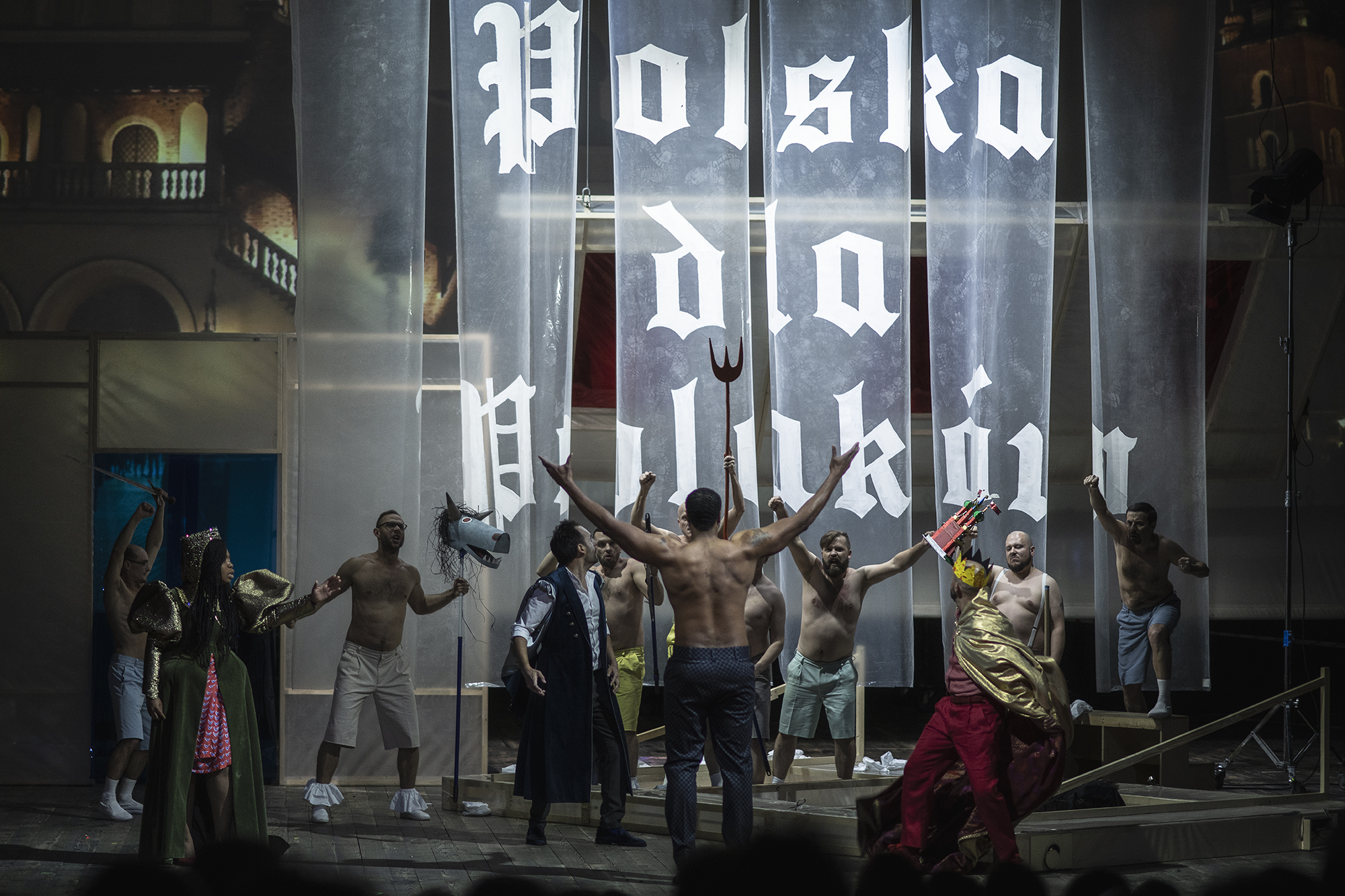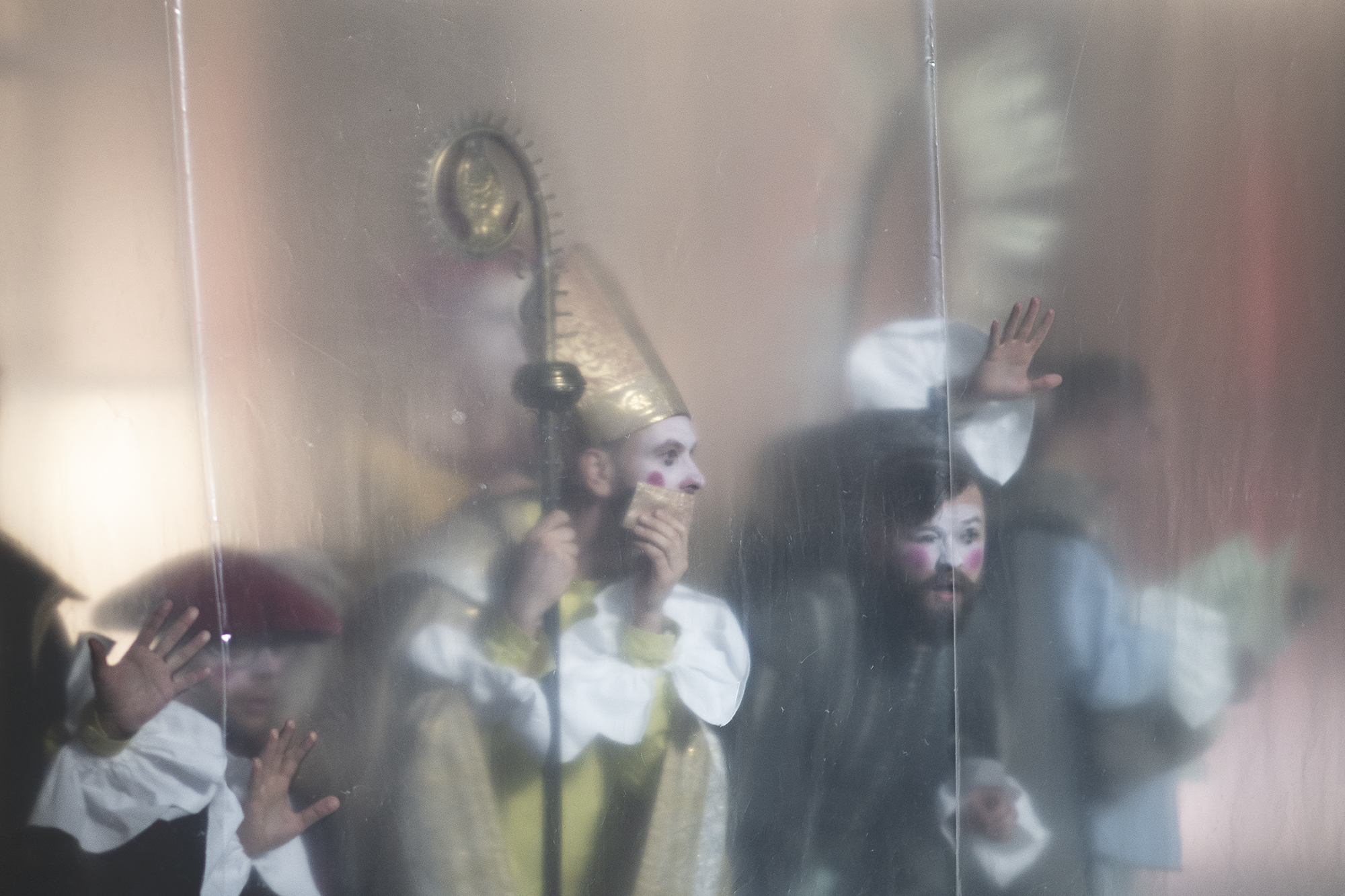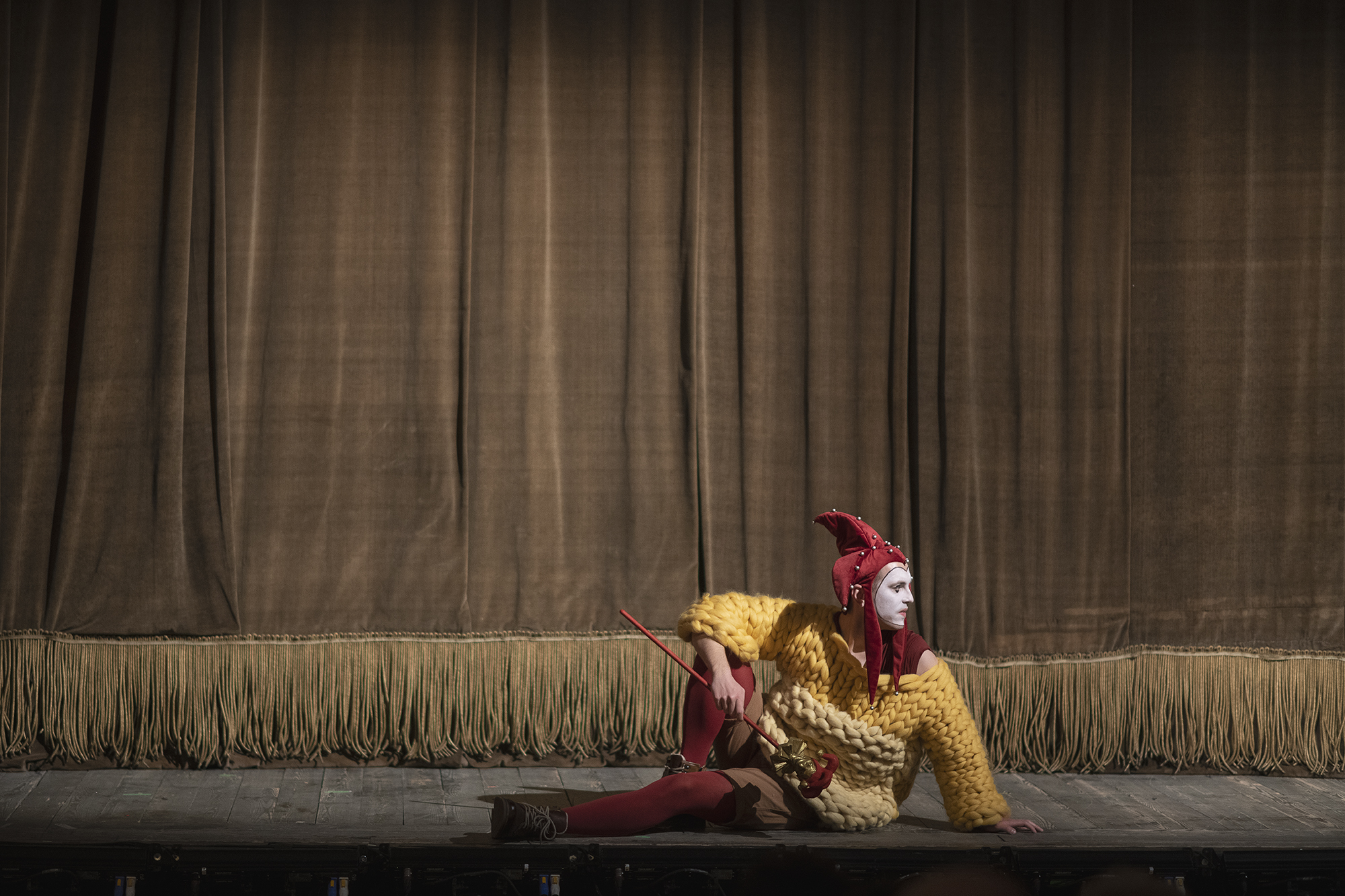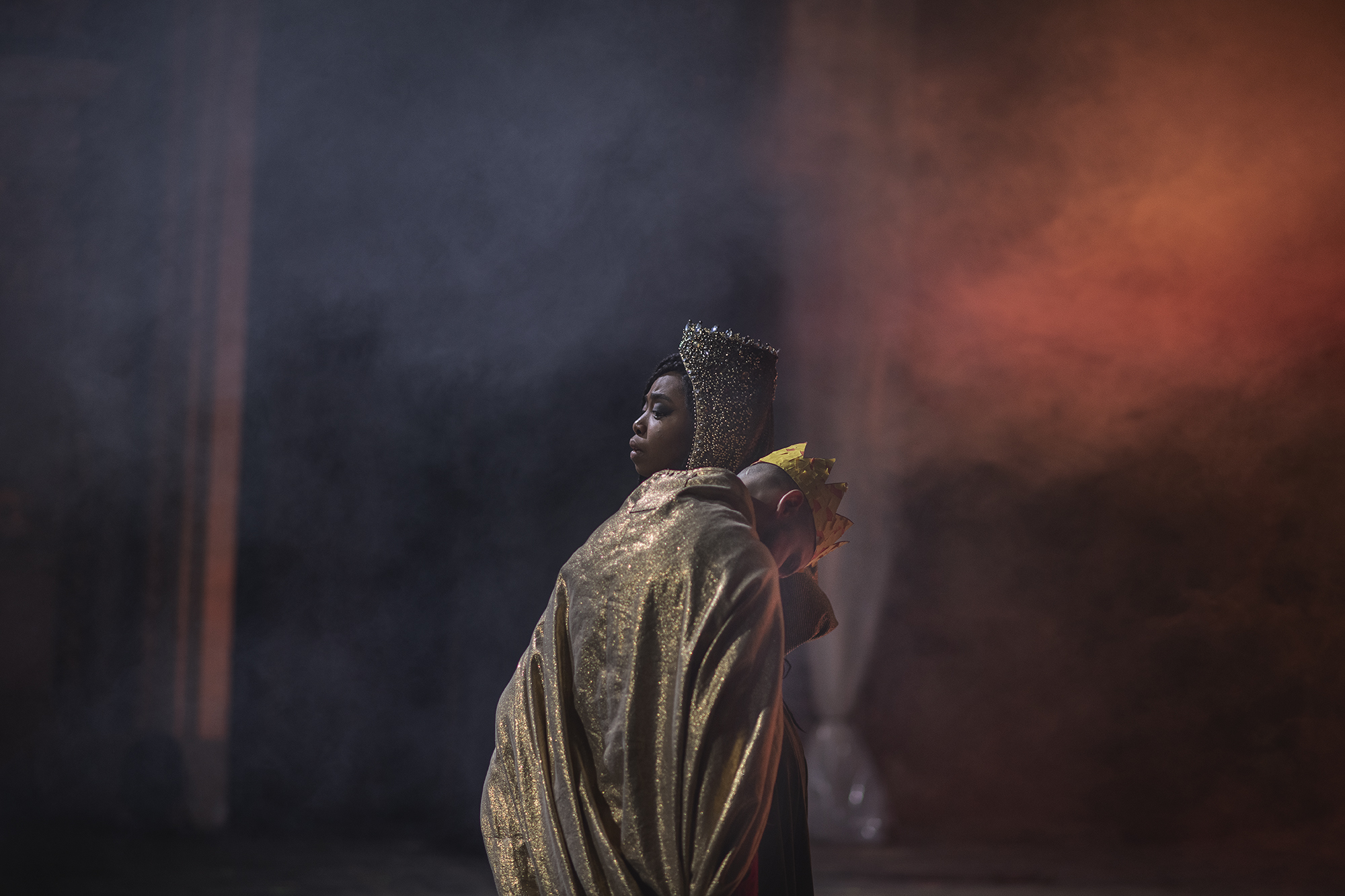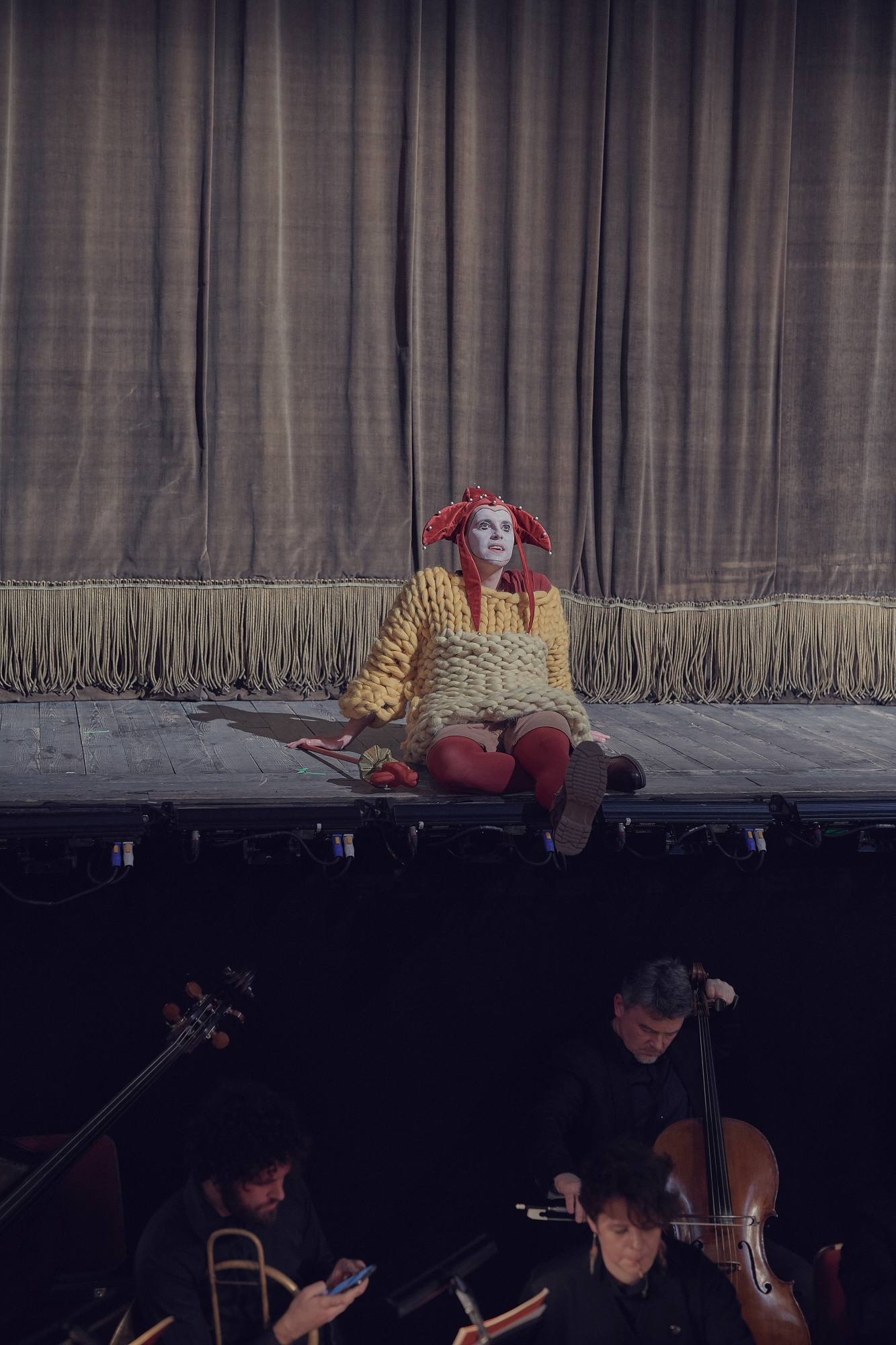One of the most eminent Polish prose writers, the most frequently translated Polish author and an outstanding resident of Krakow has just been honoured with the Act of the Sejm of the Republic of Poland declaring 2021 as the Year of Lem. There could be no better reason for Lem to become the literary patron of the coming year – on 12 September we will celebrate the centenary of the birth of the author of Solaris.
KBF – the cultural institution of the city of Krakow, operator of the Krakow UNESCO City of Literature programme – together with Wydawnictwo Literackie and the Stanisław Lem Institute Poland of the Future Foundation, in March this year issued a letter to the Marshal of the Sejm, Elżbieta Witek, supporting the initiative to declare the Year of Lem. On the 27th November, with the adoption of the resolution announcing the Year of Lem by the Sejm of the Republic of Poland, these efforts were crowned with success. ‘This is the best way to celebrate next year’s anniversary, the centenary of Stanisław Lem’s birthday. We are glad that the most frequently translated Polish author, whose books have been published in 45 languages in millions of copies, will become a patron of not only those anniversary activities that we are planning here in Krakow – the Year of Lem announced today by the Polish Sejm will stimulate next year’s literary scene all over Poland’, commented Izabela Błaszczyk, Director of KBF. ‘I am pleased with the decision to declare the Year of Lem and I hope that it will be an opportunity for readers all over the world to have another close encounter with the works of the Master. I am also convinced that this meeting will turn into a long-lasting literary journey, whose hub station will be the opening of Planet Lem in Krakow’, says Wojciech Zemek, the writer’s long-standing secretary.
Krakow UNESCO City of Literature has been preparing for the Year of Stanislaw Lem for several years now. This is due to the activities undertaken to build Planet Lem and the annual celebration of the writer’s birthday. The Planet Lem Literature and Language Centre is the first investment of this kind in Poland – it is a combination of a multifunctional literary centre with modern exhibition space. The JEMS Architekci design studio has already prepared a multi-discipline concept for the future centre, and at the moment full architectural and construction documentation is being developed. Obtaining a building permit is planned for the next year, which will allow for the commencement of the procedures for the award of works contracts. Until Planet Lem is established, the Potocki Palace will be the incubator of ideas for running the new literary centre, where from next year onwards the Krakow UNESCO City of Literature programme will be implemented.
The Krakow celebrations of Lem’s Year promise to be quite diverse. The main event will be the writer’s birthday, which in 2021 will take place on 12-14 September at the ICE Krakow Congress Centre. Stanisław Lem will also be the focus of numerous traditional events, from the Children’s Literature Festival to the Sacrum Profanum Festival. Lem himself and his work will find their place on the stages of theatres, as well as in musical works, at symposia and conferences planned for this particular year, and the context of the programme will be complemented by books, whose festive premieres are planned by Wydawnictwo Literackie.
All events dedicated to the 100th anniversary of Stanisław Lem’s birthday will be compiled at a special website roklema.pl. It will also present announcements of new book editions and previously unpublished materials, as well as competitions with prizes. The roklema.pl website will become the best source of knowledge on how and where to celebrate the birthday of the Polish author – a great figure of 20th century literature. The website will be run by the lem.pl portal with the participation of partners implementing the Lem programmes, including Wydawnictwo Literackie, the Adam Mickiewicz Institute, the Stanisław Lem Institute for Poland of the Future and the KBF (Krakow Festival Office).
Space shared by Krakow’s cultural events organisers, art exhibitions, a bookshop with albums byKrakow’s artists, literary meetings of the UNESCO City of Literature, a new edition of the “Szymborska’s Drawer” exhibition, concerts, film screenings, an information point and a service centre for guests of Krakow’s most important festivals. This is how the Potocki Palace will operate – a new address dedicated to culture with a view of the most beautiful market square in Europe. At Rynek Główny 20, a space combining heritage and creativity is being created, available to all and open to the ideas of the Cracovians.
Every place around Krakow’s Main Market Square tells the story of almost a thousand year history of the city, and the Zbaraski Palace, more often referred to as the Potocki Palace, accumulates the true genius loci of Krakow. In the sixteenth century it belonged to the Firlej family. In the following centuries, it was inherited by other rich families, underwent reconstructions, to be renovated and reconstructed after World War II. The Baroque décor, the classicist façade decorated with allegorical figures and the remarkable arcaded courtyard, modelled on the Wawel Castle, are the attributes of one of the most representative buildings in the city.
For the last 25 years the Potocki Palace has been the seat of an institution promoting German language and culture. The Goethe Institut operating here moved to Podgórska Street in October. The owners of the Palace, in order to preserve the cultural character and atmosphere of the place and continue the traditions of the past, turned to the city authorities with a proposal to design its artistic functions. In co-operation with the city’s cultural institutions and the Culture and National Heritage Department of the Municipality of Krakow, the idea was developed to integrate in this place the cultural activities of several municipal entities and some non-governmental organisations. The Potocki Palace is to become a real cluster for the new way of thinking about Krakow’s culture, a place of cooperation and “cooperation instead of competition” – the main motto of the Cultural Development Programme until 2030. It is also supposed to continue the beautiful traditions of daily cultural diplomacy of the city.
‘This is a difficult time for the city and many institutions. However, bearing in mind that the centre of Krakow is our common space and responsible protection of places of particular importance to Krakow’s cultural heritage is one of our priorities, I decided to create a new, hospitable haven for culture and a meeting place for the inhabitants and visitors of Krakow looking for the key to the richness and diversity of our city’s culture’, says Jacek Majchrowski, Mayor of Krakow.
The Potocki Palace will be vibrant with life, music, literature, events from the world of the intermedia, visual arts and meetings bringing together various environments. It will become a place of meetings with the audience and guests of important festivals and a place common for the literary community. The achievements of the City of Krakow scholarship holders and artists associated with the city will be presented here. The Palace will become a showcase of Krakow – a city of European culture, and at the same time a place of everyday work for many communities. The space in the side enfilade from Bracka Street will be occupied by the popular “Szymborska’s Drawer” Exhibition – to be newly arranged and expanded. The palace will resound with jazz, classical music, but also with the ambitious alternative music. The underground galleries will host exhibitions and publishing activities, and the ground floor will house a bookstore. The courtyard and the spacious floor will become a place of cooperation of various sectors.
The new home for culture will be co-hosted by Krakow’s institutions, organisers of festivals and educational programmes: The Bunkier Sztuki Gallery, the Museum of Contemporary Art in Krakow MOCAK, the KBF – operator of the Krakow UNESCO City of Literature programme and the Wisława Szymborska Foundation. The Palace will be a shared place – accessible to all organisations that create diverse cultural life in our city. Invitations to co-create the atmosphere of this place have already been received by the Krakow Film Festival, UNSOUND Festival, Summer Jazz Festival Krakow and Capella Cracoviensis.
Cellars: exhibition space
During the modernisation of the building of the Bunkier Sztuki Gallery of Contemporary Art, which has its permanent seat on the corner of Planty and Plac Szczepański, exhibition, educational and publishing activities of the institution will be moved to the Zbaraski Palace.
Thanks to the relocation, the gallery will be able to maintain its uninterrupted functioning in close proximity to its current seat and continue to make its offer available to the residents in the heart of the historical centre of Krakow. The launch of the Gallery’s activity in the Potocki Palace will also provide the residents with an opportunity to learn about historical interiors.
‘Historic cellars, arcades and courtyards will be filled with contemporary art. The gallery will present exhibitions of works from the Bunkier Sztuki Collection as well as individual and collective exhibitions commenting on not only artistic, but also social and political reality that surroundi us. The first exhibition to be held in the cellars of the Zbaraski Palace will be an individual exhibition of Bartek Materka’s works’, announces Maria Anna Potocka, director of Bunkier Sztuki.
Ground floor: Bunkier Bookstore MOCAK
The Palace will also house the modern bookstore Bunkier Bookstore MOCAK, a continuation of the joint project of Bunkier Sztuki and MOCAK, commenced in 2019.
’Last year, MOCAK Bookstore won the plebiscite for Krakow’s favourite bookshop, and we hope that this one will also become close to the Cracovians. The bookstore will offer an extensive range of albums devoted to art, collector’s publications, literature and art objects. MOCAK and Bunker publications will also be available here. It is important that the centre should offer unique souvenirs from the city of culture and art’, emphasises Maria Anna Potocka.
Literature, festival meetings, visitor service centres and NGO initiatives
The spaces of the former Goethe Institut Library will host literary programmes under the patronage of the Krakow UNESCO City of Literature (KMLU), which is coordinated by the KBF team, including the Literary Department. Before the establishment of the Planet LEM Literature and Language Centre in Zabłocie, the Potocki Palace will be home to various literary initiatives – those organised throughout the year and those implemented as part of the festival. For the next three years, event formats, educational programmes for children and seniors, creative writing courses, popular science lectures, reading lessons and other initiatives that will become the Planet LEM programme in the future will be tested here.
The cultural cluster in the Potocki Palace will also house a cultural information centre targeted at those visitors who want to discover our city following an unobvious trail of cultural experiences.
‘Numerous festivals organised in Krakow, as well as projects such as the Krakow Nights, will find space for festival meetings at Rynek Główny 20. Guest service centres, information points and receptions will be located here. Apart from city festivals, there will also be events organised with various partners, including film, literary, theatre, jazz, world music, design, fashion, visual arts, photography, electronic, early and classical music festivals”, announces Izabela Błaszczyk, director of KBF.
The Potocki Palace will be a new home for the “Szymborska’s Drawer” exhibition, initiated by the Nobel Prize winner Foundation, which will move here from the Szołayski Tenement House. The exhibition will be expanded to include the literary context of the period in which the Nobel Prize winner lived and worked, as well as references to her literary friends.
‘Admittedly, “Nothing can ever happen twice.”, but we are opening for the second time the exhibition devoted to Wisława Szymborska entitled “Szymborska’s Drawer”, which has been hosted by the Szolayski Tenement House – a branch of the National Museum in Krakow since February 2013 and will be closed in December this year. It has been redesigned, expanded and modernised and will be housed in the Zbaraski Palace in the Main Market Square. The exhibition will be a kind of stage design, a three-dimensional collage in which objects belonging to the poet will appear next to quotations from her work, photographs of people, objects and places. They will lead viewers from Poland and abroad into her private world of poetic imagination and intellectual inspirations. The exhibition is to be an open place, a “cultural salon” – a meeting place for people of culture and art’, announces Michał Rusinek, President of the Wisława Szymborska Foundation.
Katarzyna Olesiak, Director of the Culture and National Heritage Department of the Municipality of Krakow announces the open character of this space, where non-governmental organisations will be able to hold their events:
‘The Palace will host, among other things, writing courses, educational activities, meetings with authors, book premieres, and there will also be a media library. It is also important to emphasise the intention to cooperate closely with the neighbours and use the synergy effect. Located close to many institutions, museums and places of cultural entertainment, the Palace will be open to neighbours and all those who want to co-create the cultural fabric of the city’, announces Olesiak.
The gateway to culture
The concept of the place is in line with the upcoming sustainable tourism strategy, as well as the Culture Development Programme 2030 recommending the creation of nodes for culture and creative industries – common spaces, clusters.
‘Among the important recommendations related to the development of the field of culture, priority is assigned to creating common spaces, interdisciplinary places, whose vision is based on cooperation, sharing costs and testing new, hybrid organisational models. Such will be the node for culture at Rynek Główny 20. I believe that at the same time important social functions will be restored in this part of Krakow’s Market Square, especially since in recent years many important functions of the centre have been replaced by activities focused on tourist-related services. Various controversial tourist ‘attractions’ that strongly influence the image of Krakow should be absent from this precious space. Rynek Główny 20 is to be not so much a salon, but a hub – a place where circles, inhabitants and guests mingle. It is here that you will be able to find out what the current cultural offer of the city is, what is worth visiting, what exhibitions to see and what festival to take part in, and at the same time learn about the extremely interesting history of the Palace or see the mementos connected with the literary life of Krakow’, sums up Robert Piaskowski, Mayor of Krakow’s Plenipotentiary for Culture.
The vision of the cultural cluster in the Zbaraski Palace was inspired by similar places operating in various cities around the world, such as the Adelaide Festival Centre, the Federation Square cluster in Melbourne, the Festival Centre in Edinburgh and the Cultural Information Centre in the Quartier de Spectacles in Montreal. Taking care of a high-class heritage site and filling it with cultural content and social energy is an important asset, making Krakow’s approach so unique.
‘For us, this is an important manifestation of values. The cultural heritage of our city is a priceless yet non-renewable resource. It cannot be given back to the ‘invisible hand of the market’. It is an area that requires our protection. I believe that just as the Florian Gate (Brama Floriańska) is a symbolic entrance to the Old Town, the Zbaraski Palace will be a gateway to the most important stories about Krakow’s culture. That is why we want to combine the everyday life of the Palace with the flagship cultural projects: the Krakow UNESCO City of Literature programme, the strategy of organising the festival calendar into cultural seasons and, finally, the recently launched PLAY KRAKÓW audiovisual platform’, Piaskowski announces.
The place will derive income from the permanent exhibition and temporary exhibitions; occupying the new premises will allow for vacating other facilities, rented on the commercial market. The rent will be shared between the two municipal institutions. The Palace’s interiors will be open to institutions and non-governmental organisations with which the city cooperates as part of long-term cooperation and competitions to enrich cultural activities. The Zbaraski Palace will be a cultural centre in the heart of the city and a place which will add a new social function to the largest medieval market square in Europe. The cultural cluster at Rynek Główny 20 will be launched at the beginning of next year.
The UNESCO Cities of Literature network brings together 39 cities across 6 continents. The designation recognises excellence, calling upon cities to nurture creativity, support freedom of speech, and ensure literature reaches as wide and diverse an audience as possible. Cultural leaders from 39 cities met digitally for the network’s first online meeting (21-25 September), hosted via Zoom by Prague City of Literature.
The Cities of Literature showcased best practice and workshopped a range of collaborative projects, as well as launching their shared website: https://www.citiesoflit.com/. While an online meeting cannot recreate the joyous coming together of our network members, the cultural exchange and the stimulation of creativity that a gathering of people in our beautiful city would have brought, we hope the spirit of the annual meeting will live on in this new virtual format (Kateřina Bajo, Director, Prague UNESCO City of Literature).
Cities agree that the meetings are always vibrant, energising and highly engaging. A focus this time was supporting recovery, resilience and sustainability for writers and the industry as we move together through the pandemic, as well as working to effect positive change in the context of important social movements such as Black Lives Matter and the global climate crisis. We’re actively progressing our priority areas: to improve pathways for writers, commit to translation projects and collaborate on future book fairs and festivals, and in particular to conceive solutions to worldwide challenges exacerbated by COVID-19 such as improving literacy and social mobility and promoting equality – said Sandeep Mahal, Chair of the UNESCO Cities of Literature subgroup and Director of Nottingham UNESCO City of Literature. We need literature and a good political policy to demonstrate what a cultured, civilised society can do; what a cultured, civilised society can be. It’s what we, the UNESCO Cities of Literature, are about.
About Prague UNESCO City of Literature:
Prague, originally scheduled to host the conference face-to-face, has been a member of the UNESCO Creative Cities Network since December 2014. Prague’s most longstanding and significant project is the Prague residential programme, which offers 6 residential stays annually for foreign authors and translators. Prague facilitates accommodation, travel, a stipend, and literary events and readings for the visiting authors.
Another special project, Touches of World Literature, is a cycle of author readings taking place in collaboration with Prague City of Literature and the Museum of Czech Literature, aiming to showcase global literature and its creators. The bilingual programme guarantees appeal to both Czech and international audiences. The programme also includes an artistic interpretation of the texts by professional actors.
Delegates at the conference were proud to courier children’s books from their cities to the Prague UNESCO City of Literature Office for donation to the Public Library.
Photo by Edyta Dufaj (UNESCO Cities of Literature conference held in Kraków, 2018)
Ana Llurba from Argentina and Brynja Hjálmsdóttir from Iceland will spend two creative months in Krakow. The residents will work on their latest pieces, while contributing to the literary life of the city.
In September and October, we will be joined by two extraordinary artists. Thanks to the Krakow – UNESCO City of Literature Residency Programme, which offers stays to writers from the UNESCO Cities of Literature Network every year, they will spend two months with us – writing texts, getting to know the city and growing their networks in the literary industry. Ana Llurba and Brynja Hjálmsdóttir will have an opportunity to take advantage of the writing-conducive environment of Villa Decius.
Ana Llurba, also known as Ana Isabel Llurba Ferreira is an Argentinian poet and writer. Her volume of poetry Este es el momento exacto en que el tiempo empieza a correr (This is exactly the moment when time begins to run) won the Antonio Colinas Young Poetry Award in 2015. Her first novel La Puerta del Cielo (Heaven’s Door, 2018) was published in Spain, Argentina and Chile – it will also be available in Italy in the upcoming months. She graduated from the Faculty of Modern Literature at the National University of Cordoba. From Argentina she moved to Spain, where she graduated in Literary Theory and Comparative Literature Studies from the Autonomous University of Barcelona. Currently she works in the public sector, she also writes articles for cultural publications and runs creative writing workshops.
The second resident is a poet, writer and film critic from Iceland. Brynja Hjálmsdóttir graduated in Film Theory and Creative Writing at the University of Iceland. Her debut volume of poetry, entitled Okfruman (Zygote, 2019) was nominated for the Fjöruverðlaunin (Icelandic Women’s Literary Prize) and received an award in the Icelandic Booksellers’ Literary Prize competition. She lives and works in Reykjavik.
Ana Llurba and Brynja Hjálmsdóttir will live in the Łaski House, in the guest rooms of the Villa Decius Cultural Institute, which is a partner of the project. Their stay in Krakow will be an opportunity to focus on their creative work and to participate in the literary life of the city. If the situation permits, we will meet both writers during autumn literary events.
The Krakow – UNESCO City of Literature residency programme is addressed to writers, poets and translators from the Cities of Literature belonging to the UNESCO Creative Cities Network, and its objective is to open up opportunities for writers to present their work to the Central European readers, support greater diversity in the Polish and European literary community, as well as to enable local writers to meet their foreign counterparts. In the past, Krakow has hosted artists from the United Kingdom, New Zealand, Ukraine, Spain and Australia within the framework of the programme.
The residency programme addressed to authors from UNESCO Cities of Literature is just one of a number of projects of this kind, carried out by the Krakow – UNESCO City of Literature, alongside such residency programmes as the ICORN International Cities of Refuge Network, the Krakow-Québec residency exchange or residencies for the winners of literary awards and prizes.
The programme is carried out by the KBF (Krakow Festival Office) in cooperation with the Villa Decius Cultural Institute.
The uniqueness of this year’s edition of the Conrad Festival is not only evidenced by the choice group of guests from all over the world, but also by the multitude and variety of topics discussed during the Festival. Due to the unpredictable pandemic situation in the world, this year for the first time in history we will connect online with the authors and authors, guests of the main event programme. We will meet with Sigrid Nunez, Marek Bieńczyk, Roy Jacobsen, Karl-Markus Gauss, Magdalena Tulli and Elif Shafak, among others. The Conrad Festival is organised by the City of Krakow, the Krakow Festival Office and the Tygodnik Powszechny Foundation.
The idea of this year’s festival
The motto of this year’s festival is “The Visible and the Invisible”. Together with our guests, we will reflect on the ways in which literature names and introduces selected phenomena into society, while leaving others unnamed (or invisible). Michał Paweł Markowski, artistic director of the festival, expands on the idea: “For who decides what is visible and what is not visible? Who has the power to show the invisible and hide the visible? After all, the fact that you cannot see someone does not mean that they do not exist.” He further adds, “And what about the excess of the visible? Does it not tire you out or make you turn your eyes away? Whom and why do we allow to exist in the visible space, and whom and why do we deny it? Whom do we sanctify on the altar of visibility and whom do we ignore?”
The slogan provokes a series of questions that will come back in conversations with our invited guests. Is freedom the paramount value? Can a story change the world? Can memory save us? How do we deal with invisibility? What lies beyond the limit of words? Can memory be restored? These are just some of the issues that we will try to take on during the festival week.
The Festival online
“This year it is not the audience that comes to the festival – it is the festival that comes to the audience via a tablet, smartphone, computer,” announces Izabela Helbin, director of the Krakow Festival Office. “One of the most important literary festivals in the world will come to our homes, accompany us on walks, over morning coffee and afternoon tea. This October, we invite you to evening meetings with excellent writers. And this is all thanks to the digital media and the internet. We cannot imagine that this celebration of literature could be missing from the festival map of Poland. This year it will be slightly different than usual, but equally interesting and valuable.”
Twenty-one meetings in the main programme
From 19 to 25 October, we will host writers from all over the world on the channels of the Conrad Festival. The organisers will connect with Norway, Belgium, the United States, Czechia, France, Turkey, Ireland, Iceland, Russia and Austria. Every day of the festival, a virtual meeting with one Polish writer and two writers from abroad is planned.
“Each of the invited guests,” says Grzegorz Jankowicz, the festival’s programme director, “will talk about a different aspect of this year’s theme. We will talk with some about private experiences (loss, memory, trauma, obsession), with others about social issues (the function of literature in the modern world, invisible parts of Central and Eastern Europe, and the cultural and political relations between East and West).
The question about the experience of pain and its impact on our perception of the world and other lives will feature in a meeting with the National Book Award winner, American writer Sigrid Nunez, who will talk to Magda Heydel about her bestselling novel The Friend. During the first day of the festival, Etgar Keret, an Israeli-Polish writer and poet, known and adored by the festival audience, called a master of the short form, will be invited to a discussion on whether it is possible today to create literature that hides social and personal problems from us.
The paradoxes of freedom and its (in)visible aspects will be discussed by the Romanian-French playwright and writer Matei Vişniec, author of the famous play How to Explain the History of Communism to Mental Patients. Together with meeting host Joanna Kornaś-Warwas, he will try to answer the question of whether every human being can be free and whether freedom is in fact the highest value for humanity. The second day of the festival will conclude with a conversation with the award-winning writer Bianca Bellová, whose The Lake, published in 2016, made her a star of contemporary Czech literature. Bellová will talk about the disappearance of the world as an inevitable part of the process of growing up.
A meeting with the Belgian feminist and philosopher Chantal Mouffe will open the third day of the festival. One of the most important representatives of post-Marxism will raise the problem of populism, which in the 21st century is spreading in almost all corners of the world. From Belgium, we will move to Norway, thanks to Roy Jacobsen, whose novel The Unseen made it to the final of the International Booker Prize in 2017. The story of distant, inaccessible regions of the world will end another day of the festival.
The meeting with writer Kevin Barry is a real treat for lovers of Irish literature. Barry is the author of novels and short stories. His book Night Boat to Tangier was on the list of nominations for the 2019 Booker Award. The destructive power of words, in turn, will be discussed by the Icelandic novelist and radio journalist Sigríður Hagalín Björnsdóttir, author of Eyland [Island], described as the most important Icelandic novel of recent years.
On the fifth day of the festival, Belgian writer Adeline Dieudonné will meet with readers. The author will talk about toxic family relations, which she described in a moving way in her debut novel Real Life. The book sold two hundred thousand copies in France and received fourteen literary awards. The readers will meet with Maria Stepanova, an award winning Russian poet and journalist with a very characteristic style, to hear how to deal with the burden of the past and memories.
On Saturday afternoon, Viktor Yerofeyev will tell us about Russia. A writer and publicist, known for his skilful handling of the grotesque and sarcasm, he reckons with Russian history and mythology in his works. Another guest, Karl-Markus Gauß, will take us southwards into the world of the Balkans and the former Austro-Hungarian Empire. The Austrian writer, an expert on Central European ethnic minorities, tirelessly travels through those European countries and cities that others have already forgotten about. The sixth day of the festival will end with a conversation with Shafak, whom Orhan Pamuk called the best Turkish writer of the last decade. Her works have so far been translated into twelve languages.
The last day of the festival will have an exceptionally strong resonance thanks to Irish essayist Emilie Pine, whose texts, which constitute a kind of diary, challenge the superstitions of femininity and their strength is unconditional and critical sincerity. The surprising final meeting with opera singer Ian Bostridge will shed light on the question: What happens to our life when we are practically obsessed with just one work? In Bostridge’s case, it is Franz Schubert’s Winterreise (Winter Journey), which he has been performing for several decades and about which he wrote a fascinating book.
Strong Polish representation at the Conrad Festival
The Conrad Festival also means original presentations of Polish literature. Readers will meet with Zyta Rudzka, writer and screenwriter, who received the Gdynia Literary Award in 2019 for her book Krótka wymiana ognia [A Brief Exchange of Fire], and Marek Bieńczyk, Polish writer, literary historian, winner of the Nike Literary Award for his collection of essays Książka twarzy [Book of Faces], nominated for the same award last year for his collection of essays Kontener [The Container]. The festival programme also includes a meeting with Mikołaj Łoziński, whose latest novel, Stramer, reverberated widely in the literary world and has been nominated for the Nike Literary Award.
Five-time finalist of the Nike Literary Award and winner of the Gdynia Literary Award 2012 for the novel Włoskie szpilki [Italian High Heels], Magdalena Tulli is another guest of the Conrad Festival. We will also meet with Joanna Rudniańska, winner of the Janusz Korczak International Award, author of the renowned novel Bajka o Wojnie [A Fairy Tale About War], and Małgorzata Rejmer, author of the book Błoto słodsze niż miód [Mud Sweeter Than Honey], which won the Polityka Passport award. The list of this year’s guests concludes with Agnieszka Pajączkowska, a culture expert and creator of photographic projects. In her book, Wędrowny Zakłąd Fotograficzny [The Wandering Photographic Shop], she describes a journey through the eastern and south-western borders of Poland, during which she offered to take portrait photos of the inhabitants in exchange for family stories.
The Conrad Award
On the last day of the festival, we will meet the winner of the Conrad Award, which has been handed out since 2015. The statuette, in the form of a characteristic telescope, goes to the author of the best prose debut every year. The Conrad Award is a part of the programme for supporting debuts in Krakow – UNESCO City of Literature, a joint venture of the City of Krakow, the Krakow Festival Office, the Book Institute and the Tygodnik Powszechny Foundation
The Conrad Festival is co-financed by the Minister of Culture and National Heritage from the Culture Promotion Fund.
Kraków UNESCO City of Literature announces the 2020 call for applications for the International Residency Program for writers and translators.
The Program is dedicated to all emerging writers, and poets working currently on a writing project and willing to learn more about the Polish literary community. The Residency Program is a perfect opportunity to professionalize writing skills and find the optimal conditions for creative work, and present own writing to the new audience. Learn more about the program from the organizers and the residents!
The call for applications for 2020 is now open. Deadline for application submission is 29th February.
What we offer:
In 2020 the Residency Program in Krakow will offer writers a two-month stay in the following periods of the year:
1st May – 30th June
1st September – 31st October
Residents will stay at the Villa Decius, official partner of the project with years of experience running international residencies, including the Visegrad Literary Residency and the ICORN residency program.
Besides stipend we cover transportation costs to and from Krakow. The Krakow Festival Office will guarantee residents the opportunity to participate in the literary life of the city and help to develop opportunities for them to promote their works in Poland.
What we expect:
- Connection with any UNESCO City of Literature.
- At least one published book (fiction or non-fiction), a poetry collection, screenplay or theatre script by the applicant.
- Work on a literary project during the residency
- Upper-intermediate level of spoken English.
- Interest in the Central European region.
- Readiness to participate in the literary life of Krakow, including events, meetings promotional interviews and engagements, festivals, where applicable.
- Residents will be asked to write a text (work of fiction or non-fiction) that will feature the City of Krakow (min. 6 000 to max. 11 000 characters with spaces) in some fashion and will be used in the future, published collection for promotional purposes.
Required documents:
• Online application form
• Extract from a published text (in Polish or English), no more than 2 pages in length.
• Biography/CV
• Optional: recommendation letter, letter of motivation
Deadline
To submit an application, please fill out the application form by February 29th, 2020.
In case of inquiries, please contact Elżbieta Foltyniak, elzbieta.foltyniak@biurofestiwalowe.pl.
The Residency Program is a strategic project of the Krakow UNESCO City of Literature Program, operated by the Krakow Festival Office, which will fulfill the priority of strengthening international cooperation in the field of literature and the creative industries. It aims to promote the Cities of Literature Network, provide writers with a platform to showcase their work and talent to a Central European audience, support greater diversity of voices and literature on the Polish and Central European book market and offer local writers the chance to create links with international writers as well.
The Residency Program is realized in partnership with Villa Decius Institute for Culture.
5 days, 139 participants and 64 meetings, workshops and presentations – these are the numbers for the event that inaugurated the CELA project, in which we took between 13 and 17 of January in Brussels. Before us are 4 years of international collaboration on developing the book market in Europe and professionalising the activities of writers and translators in foreign markets.
CELA, or Connecting Emerging Literary Artists, is a programme that offers three emerging authors and translators the opportunity to meet artists from other European countries, take part in educational courses, consult their work with mentors and present it to publishers and literary agents at festivals in Poland and abroad. Krakow UNESCO City of Literature represents the Polish team, who were all in attendance at last week’s meeting of authors and the literary industry from ten European countries. Alongside us, representatives of Belgium, Italy, Spain, Serbia, Portugal, Czechia, Slovenia, Romania and the Netherlands are participating in the project. The week in Brussels was the first opportunity for the participants to get to know each other, exchange good practices in the field of functioning of literary institutions in their countries of origin, and jointly defined an action plan for the next four years. We’re going to roll up our sleeves because our common goals require organised, systematic work by all project partners. As the Dutch organisation Wintertuin – the project organisers – argue, talented writers and translators can only build an international careers based on translated literary works, and the results of their work will not be visible abroad without the right competences and an efficient network within the industry. The defined gaps in the European literary market, which CELA aims to reduce include differences between national and international book markets – especially for the so-called smaller languages – and the gap between the traditional book industry and the system of circulation of literary works in the digital age.

There will be many more opportunities to meet. Specialist courses for writers selected for the project, masterclasses for translators and internships for literary life animators representing partner institutions will be held until March next year. The whole cycle will end with an almost two-week course in creative non-fiction writing in Krakow, UNESCO City of Literature. Three months later, the texts written by the participating writers will be published, translated in each case into the other languages of the project participants. CELA will then change its image – the task for both us and our other partners will be to promote the resulting works. You can expect meetings with the authors at, for example, the 13th edition of the Conrad Festival in 2021.
Last year, the Krakow Festival Office conducted a call for proposals, in which the artists who make up the Polish representation in this edition of the CELA programme were selected. Translators of the selected languages into Polish are Aleksandra Wojtaszek (Serbian), Agata Wróbel (Czech), Gabriel Borowski (Portuguese), Mateusz Kłodecki (Italian), Olga Bartosiewicz-Nikolaev (Romanian), Olga Niziołek (Dutch), Ewa Dynarowicz (Dutch), Katarzyna Górska (Spanish) and Joanna Borowy (Slovenian). The selected translators will translate texts from the native languages of the organisations involved in the project. Three Polish writers will take part in the project: Joanna Gierak-Onoszko (author of 27 śmierci Toby’ego Obeda, Dowody na Istnienie), Aleksandra Lipczak (Ludzie z Placu Słońca, Dowody na Istnienie) i Urszula Jabłońska (Człowiek w przystępnej cenie. Reportaże z Tajlandii, Dowody na Istnienie).
We are thrilled to be part of the team creating the international CELA brand together! We will keep you informed about further activities that are changing the shape of the publishing market in Europe and building bridges between different sectors of the literary industry – regardless of the borders dividing us.
You will be able to follow the results of the CELA project at cela-europe.com, Facebook and Instagram.








International travels of programme participants, as well as literary courses and residencies are carried out with financial support of the European Union under the Creative Europe Programme.
Photo: Gaby Jongenelen
The history of the German anti-Nazi student organisation, which manifested their opposition against the authorities and called upon society to unite against the rulers has not been forgotten – and definitely not by the world of opera. Udo Zimmermann returned to the subject a couple of times. As a university student, he scored his brother’s libretto, and more than a decade later, he started working with the text by Wolfgang Willaschk. Weisse Rose is devoid of dramatic plot – instead, the piece focuses on the analysis of the protagonists’ emotional states in the final moments of their lives. Seeing their impending demise, the Scholl siblings – Sophie and Hans – gradually lose the clarity of their thoughts, delve deep into their memories and give in to unreal, idyllic fantasies (Sophie) and nightmarish visions (Hans). By standing in opposition to the authorities they did not believe in and calling upon the society to view them from a critical point of view, they raised the universal subject of awakening the nation and speaking against evil and injustice.
Focusing on the protagonists’ emotions and experiences, the analysis of a gradual descent into madness and the very way the music was created clearly allude to the Expressionists of the first half of the 20th century – its Viennese representatives chief among them. The musicians of Sinfonie Orchester Biel Solothurn built the tension by playing anxiety-inducing ostinatos – personally, I could not get the repeating harp leitmotif out of my head for quite a while – coupled with sudden dynamic and texture contrasts. The instruments employed opened up a vast space for sound experiments. The delicate, oneiric sounds (especially the harp, violins and flute) were juxtaposed with brutal and blunt ones, while both in music and the libretto, reality mixed with fantasy, underscored by colourful and flickering sound spots. I found the a cappella parts the most poignant – due to the accompanying sense of loneliness and fear. The voices of Marion Grange (soprano) and Wolfgang Resch (baritone) meshed perfectly with each other, and their singing was clearly unforced, free and honest. Their performances were devoid of wild vibratos and exuberant interpretations – instead, their singing was full of simplicity and authenticity, despite having to perform difficult parts based on far-reaching changes in melody.
The raw and dark hall of the Małopolska Garden of Arts made for a perfect set for the award-winning staging by Anna Drescher. The changes in her minimalist stage design emerged along with the growing anxiety of the protagonists, whose world – even the imaginary one – kept gradually falling apart. Do Sophie and Hans actually live in the same reality? They both crave closeness, warmth and touch of another human being, while not seeing each other – the entire work has only a few parts where they sing together.
Willaschk’s libretto does not distort the facts – the siblings are going to die, yet they are willing to uphold their beliefs to the bitter end. The final scene is a manifesto – a call to the audience, urging them to oppose indifference towards harm, stupidity and hostility. Despite its pastoral sound, the excerpt from Franz Schubert’s Piano Quintet in A major, which clearly refers to his Die Forelle, which rang out at the end of the opera, gained a new stronger meaning in the context of Zimmermann’s piece – even in seemingly calm times, we need to be vigilant to see the danger threatening our freedom in time.
Maryla Zając for the Krakow Festival Office
- fot. Edyta Dufaj
- fot. Edyta Dufaj
- fot. Edyta Dufaj
- fot. Edyta Dufaj
- fot. Edyta Dufaj
- fot. Edyta Dufaj
- fot. Edyta Dufaj
- fot. Edyta Dufaj
- fot. Edyta Dufaj
- fot. Edyta Dufaj
- fot. Edyta Dufaj
- fot. Edyta Dufaj
- fot. Edyta Dufaj
- fot. Edyta Dufaj
- fot. Edyta Dufaj
- fot. Edyta Dufaj
- fot. Edyta Dufaj
- fot. Edyta Dufaj
Sigismondo, with a libretto by Giuseppe Foppa, is based on its authors’ fantasy about Poland, which was nowhere to be found on the world maps at the time of its premiere in 1814. Using literary fiction, they showcased the universal themes of tolerance towards otherness and the impact of emotion on decision making.
Trusting the words of his jealous minister Ladislao (Władysław), King Sigismondo (Zygmunt) accuses his wife Aldimira of adultery and sentences her to death, which leads to the threat of a war with Hungary – King Ulderico wants to avenge the death of his daughter. The plot thickens: Aldimira is alive, saved by Zenovito (Ziemowit), one of the courtiers. After many years have passed since her apparent death, the king meets a woman who bears a striking resemblance to his late wife – who is actually Aldimira – and agrees with Zenovito’s idea that she should try and pass for the queen for Ulderico’s benefit. Ladislao is unable to stop scheming in order to win over the woman, which ultimately leads to his defeat.
Sigismondo in a humorous and brilliant rendition by Krystian Lada refers to well-known Polish symbolism from our art and everyday lives. The opera abounded in references to Matejko’s works, plays of colourful lights, contrasts and textures affected by the matte smoke and the bright shine of stage lights. The way the protagonists were spread around the hall of the Juliusz Słowacki Theatre also contributed to the painterly nature of the work. The choir – showcasing their vocal and acting skills – presented various vivid images on stage throughout the play. The video materials employed by the director – both intimate and delicate, as well as comical ones – diversified the piece and were naturally intertwined with the plot. The way the opera staging referred to commedia dell’arte highlighted the theatrical and fictitious nature of the story, which is more universal than it seems to be at the outset.
Sigismondo is characterised by a number of musical ideas known from other works by the maestro of bel canto. The bold jumps in melodies and exhausting coloraturas based on long staccatos were naturally and unobtrusively combined with the instrumental music performed by the musicians of Capella Cracoviensis under the baton of Jan Tomasz Adamus, artistic director of the festival. With his three-octave scale, Franco Fagioli (Sigismondo) easily combined the precision of the breakneck vocal runs with authentic acting, starting with his first bars. The deep tenor of Pablo Bemsch (Ladislao), who played his part with a pleasant lightness, was also particularly attractive. The meticulous preparation of the perfectly coordinated duos – including the enchanting “Un segreto è il mio tormento” from the first act – deepened the intimacy of the scenes.
This year’s edition of the Opera Rara Festival raises questions about divisions and walls. Despite being an opera buffa, Sigismondo can be hardly considered comical, when we take a closer look at its deeper meaning. Under the layer of palace intrigues and plots, it explores the issues of sense of identity and community, prejudices against otherness, as well as borders and limits that we are willing to cross and exceed in order to achieve our own goals. We are in for another meeting with Krystian Lada – thanks to Katarzyna Głowicka’s Unknown, I Live With You, which will be presented soon.
Maryla Zając for the Krakow Festival Office
- fot. Klaudyna Schubert
- fot. Klaudyna Schubert
- fot. Klaudyna Schubert
- fot. Klaudyna Schubert
- fot. Klaudyna Schubert
- fot. Klaudyna Schubert
- fot. Klaudyna Schubert
- fot. Edyta Dufaj
- fot. Edyta Dufaj
- fot. Edyta Dufaj
- fot. Edyta Dufaj
- fot. Edyta Dufaj
- fot. Edyta Dufaj
- fot. Klaudyna Schubert
